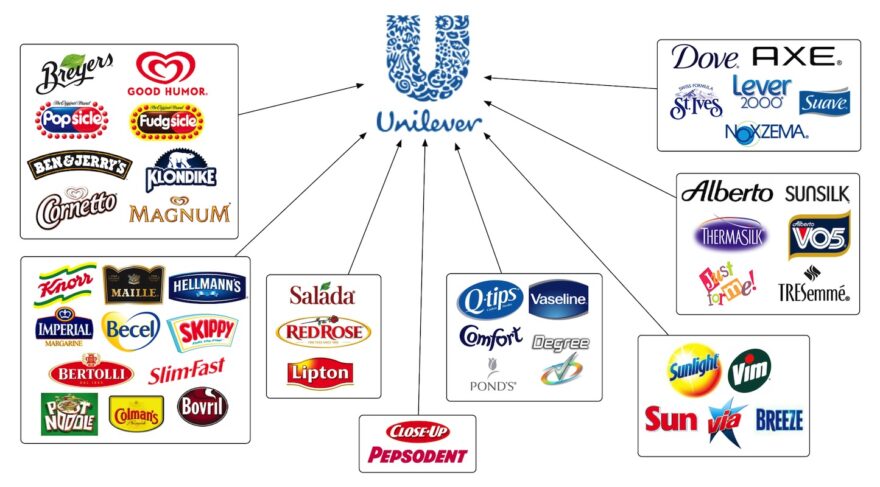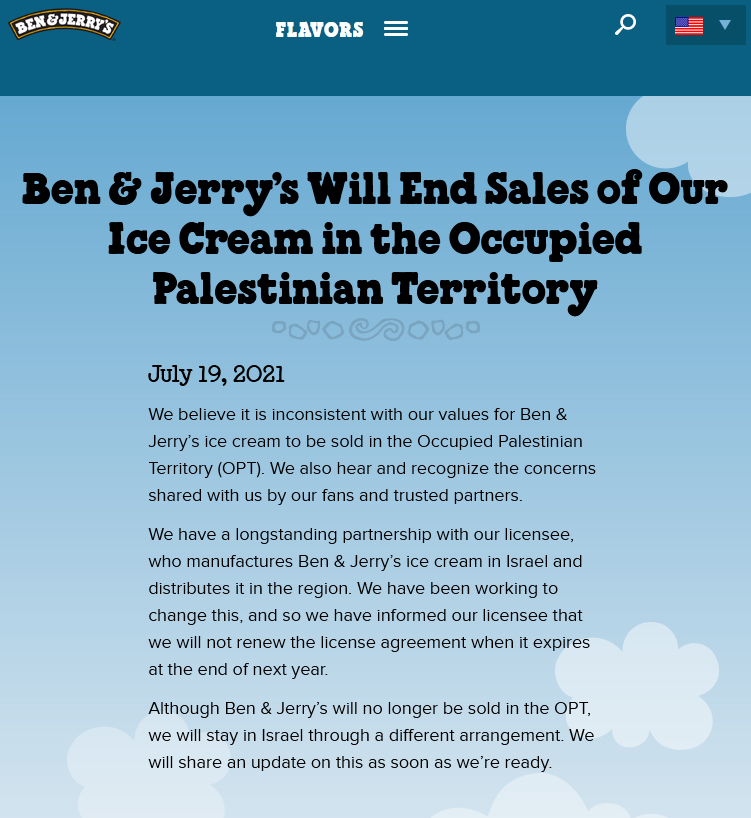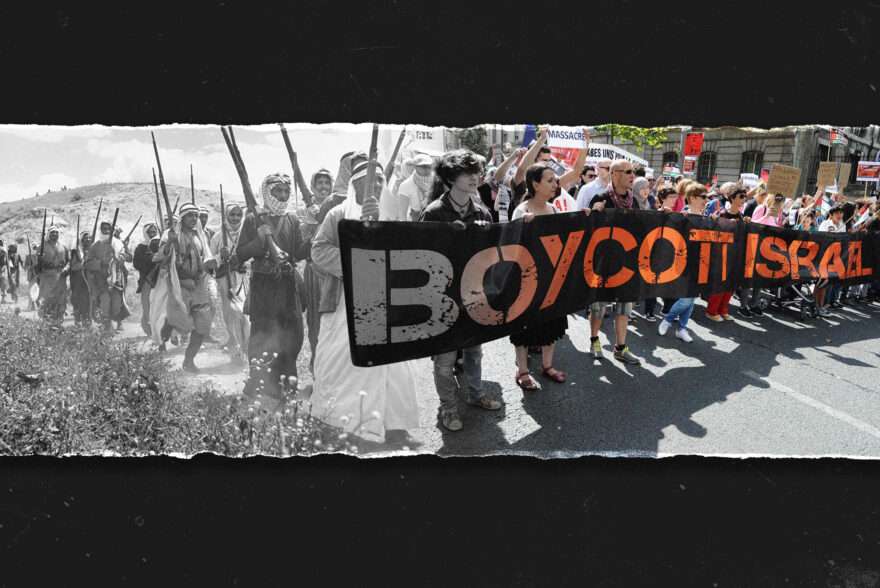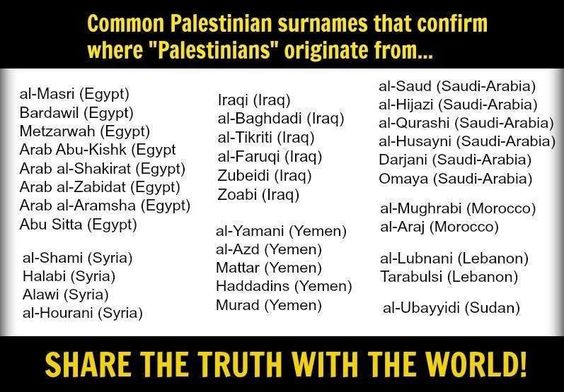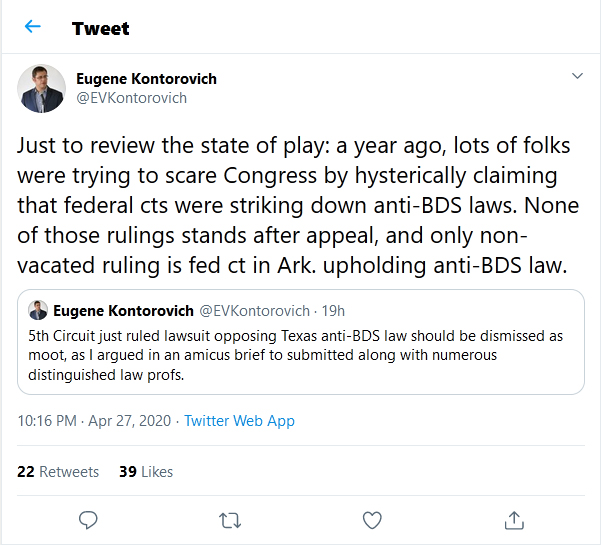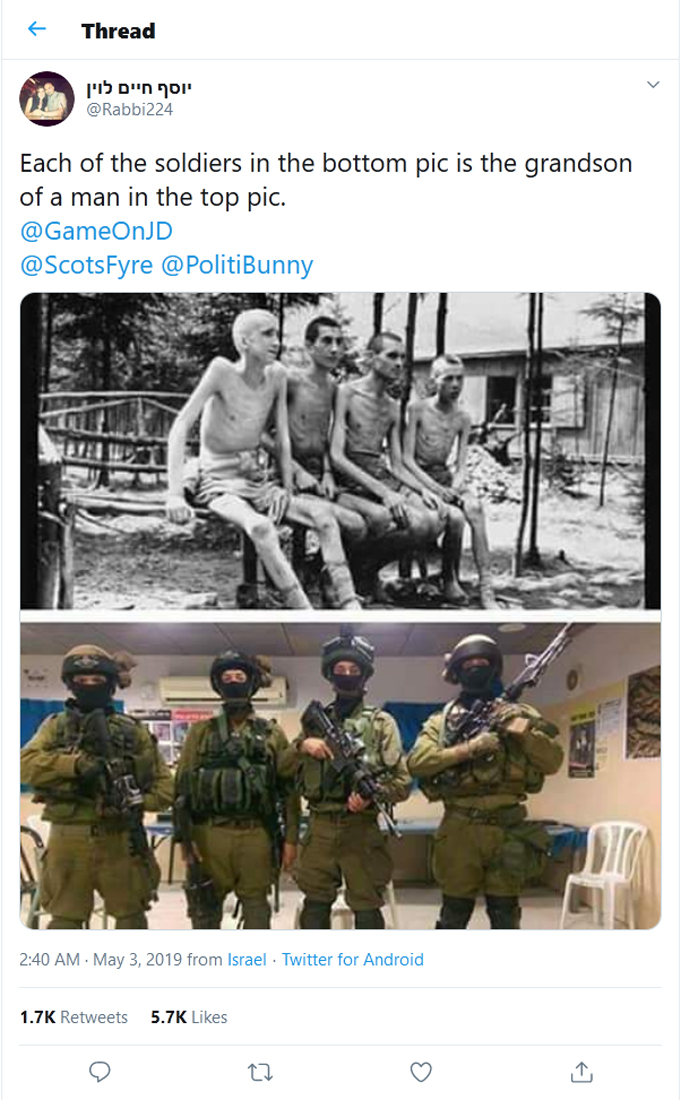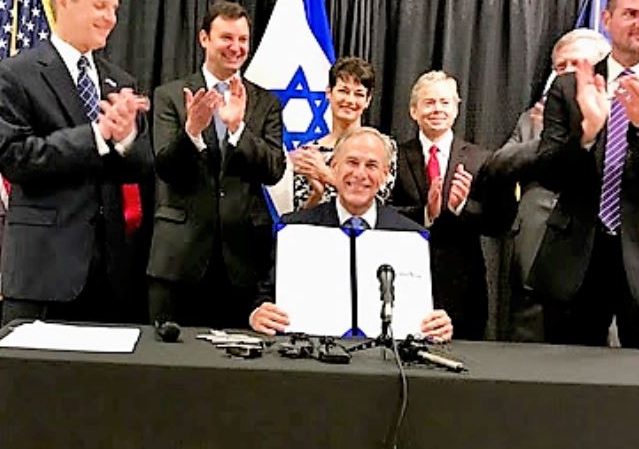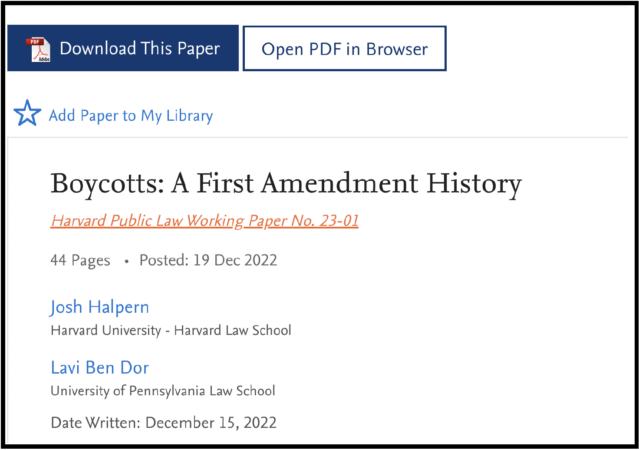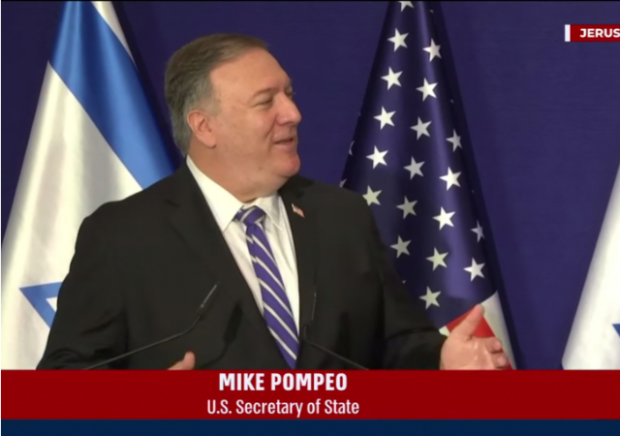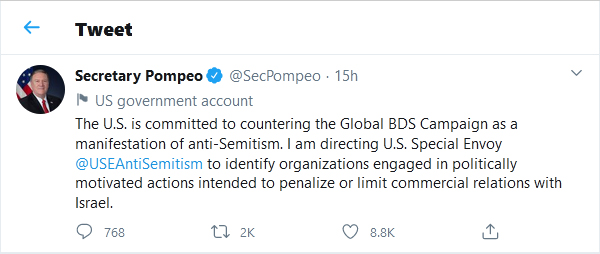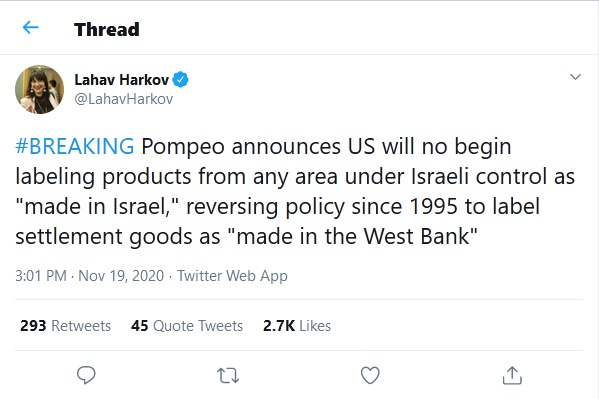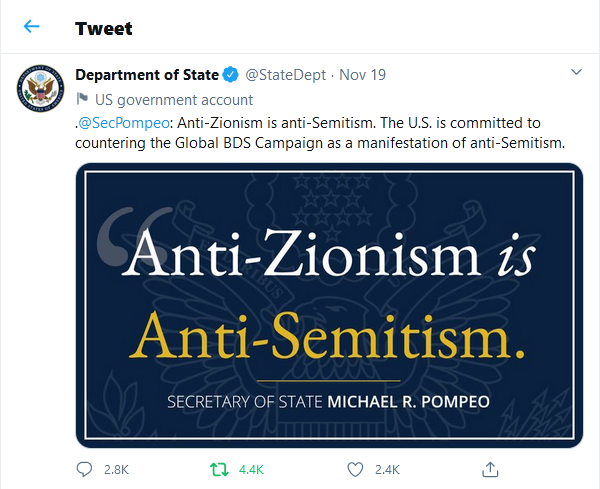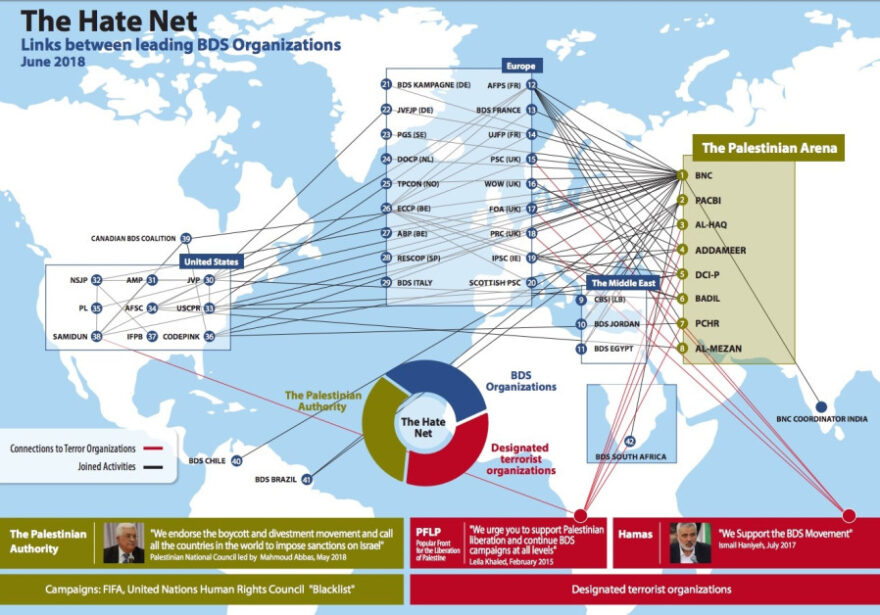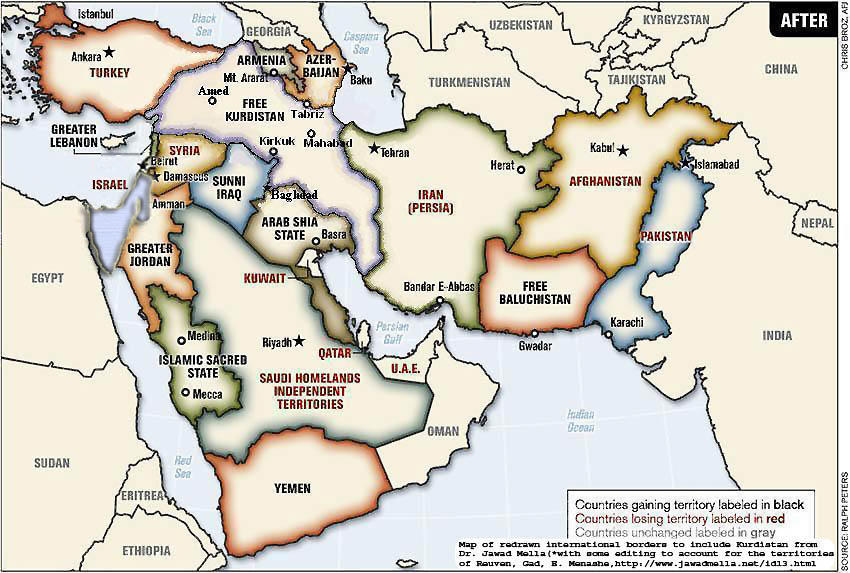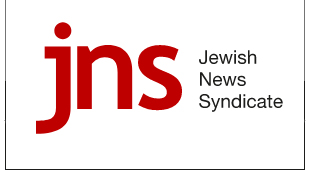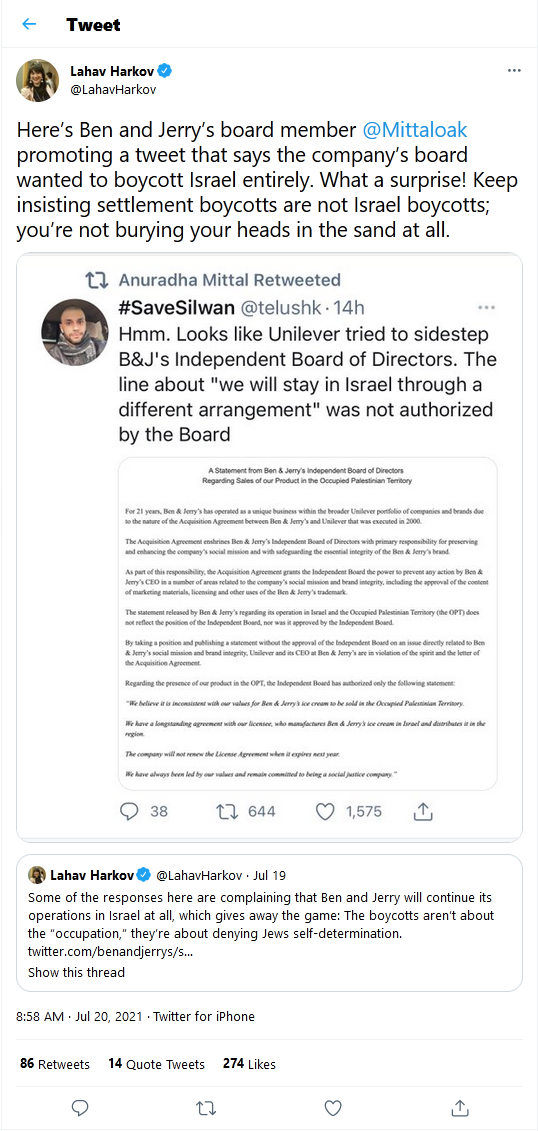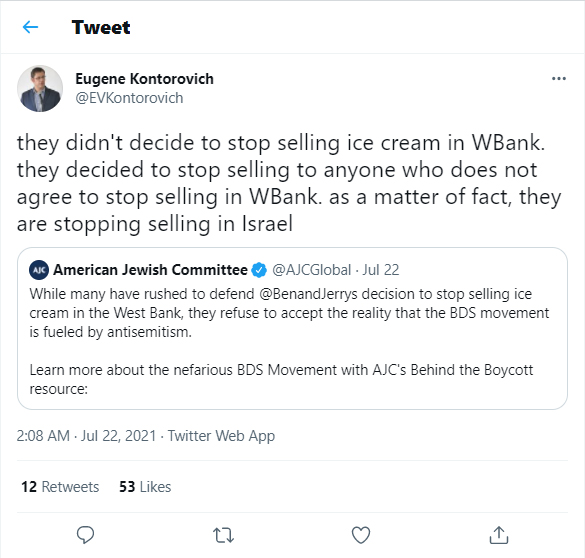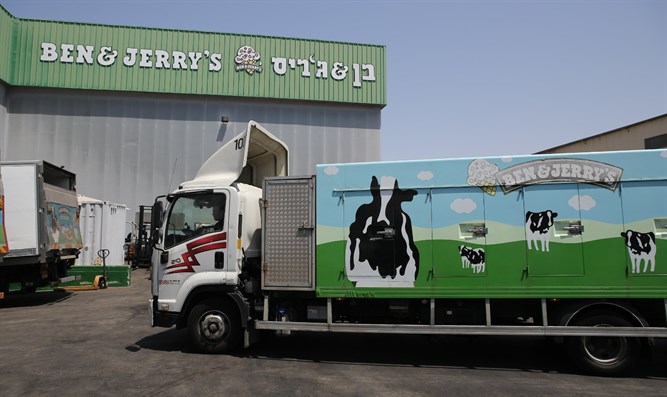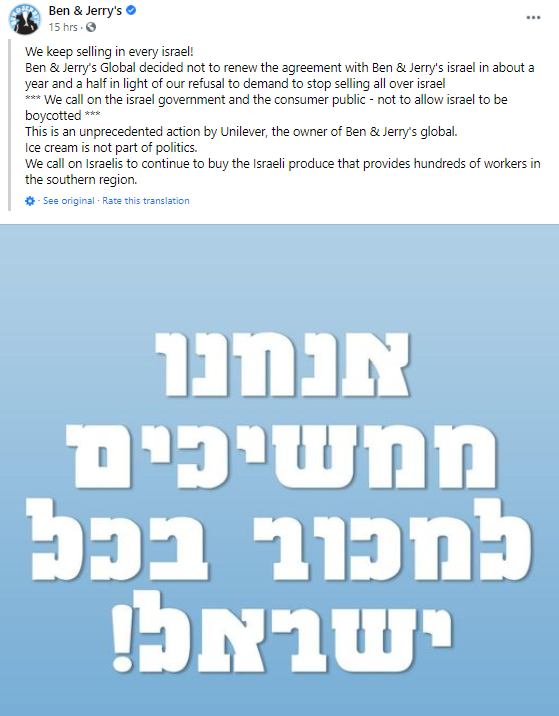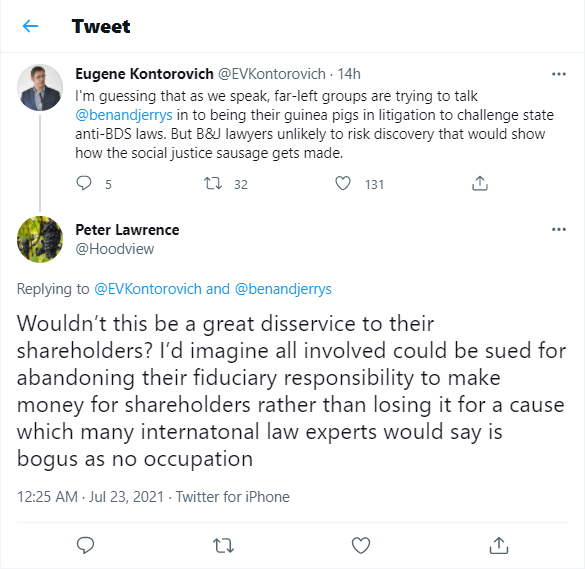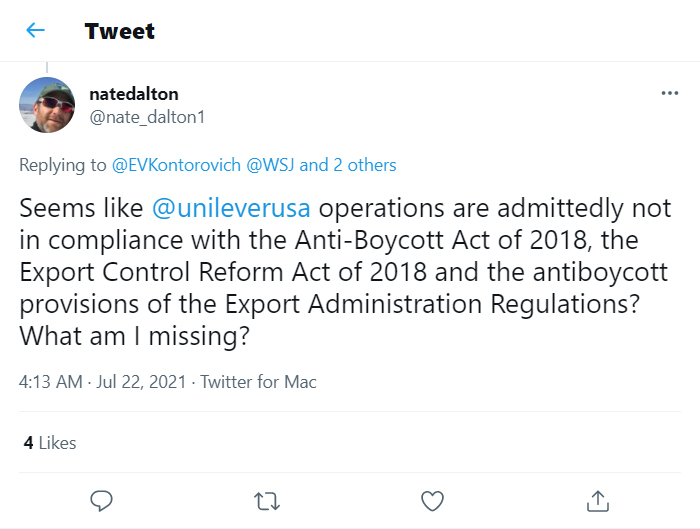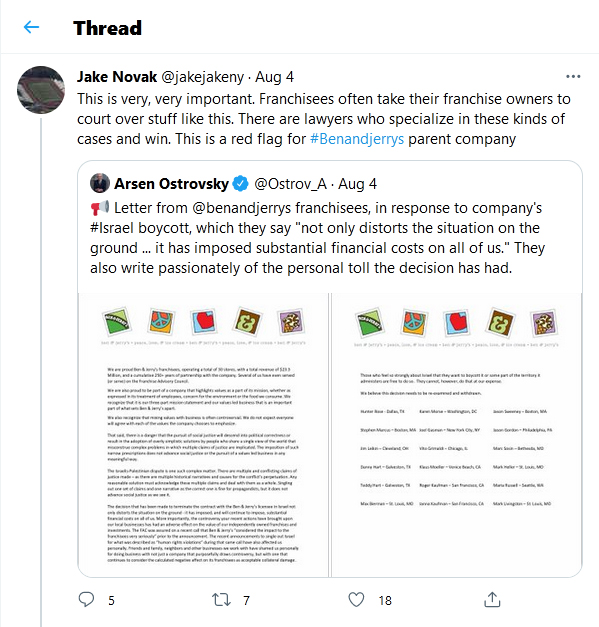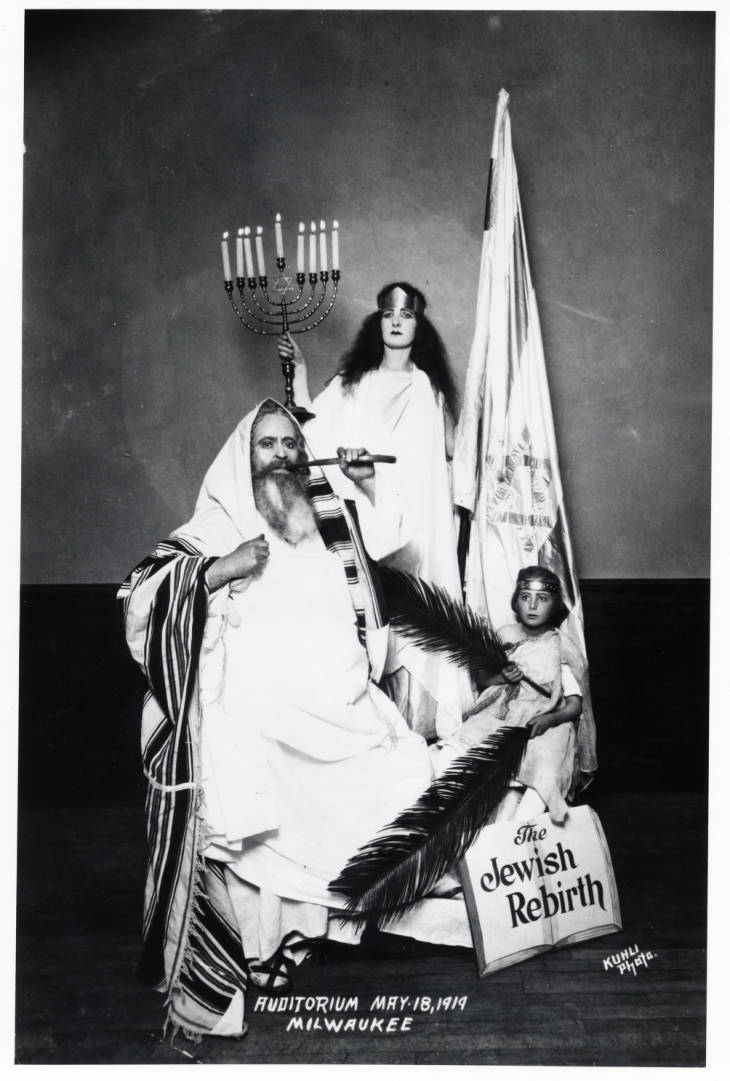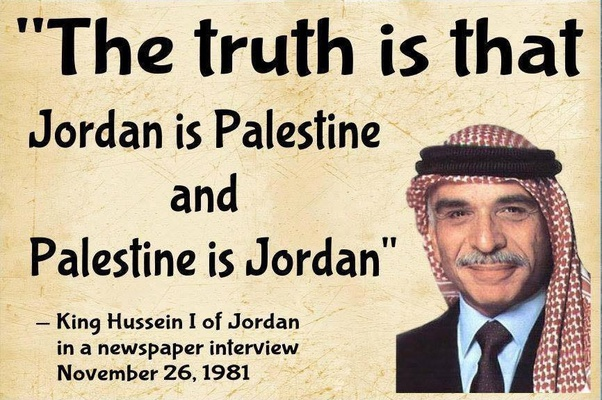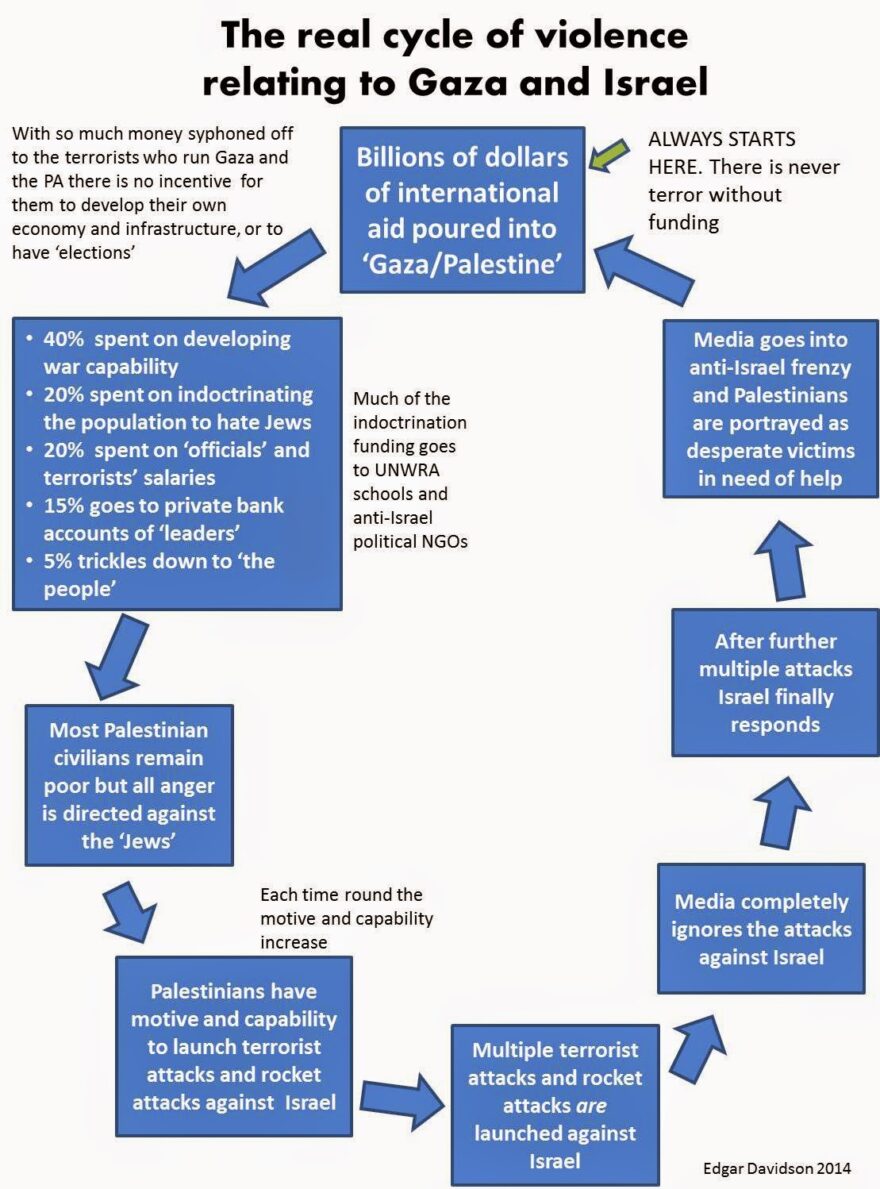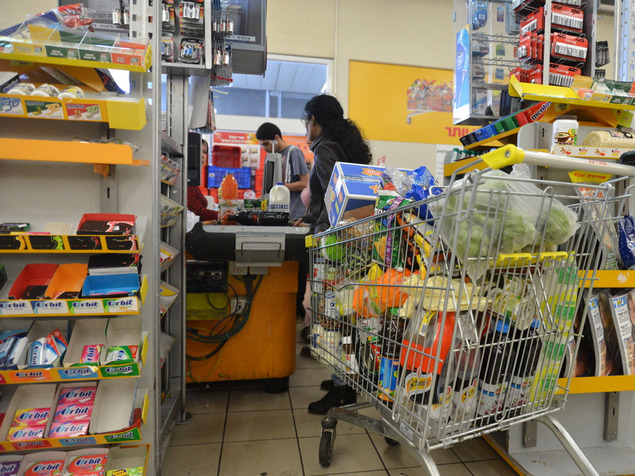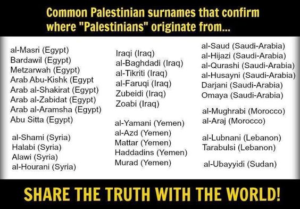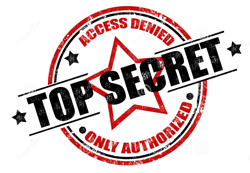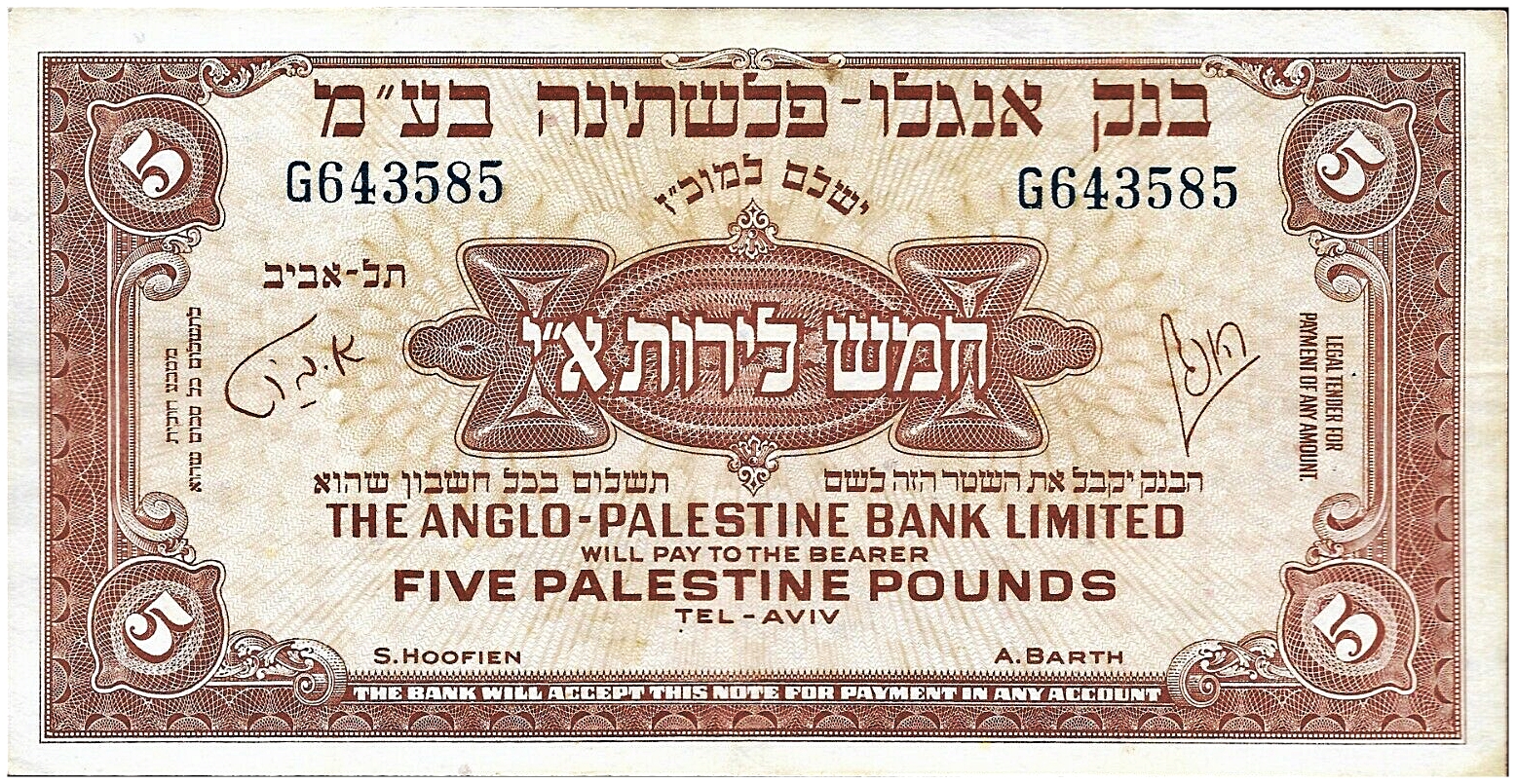Ben Shapiro: Most US Jews aren’t Jewish in their identity

JerusalemCats Comments: This is what the Jews In Name Only “Useful idiot” do not understand about living in israel.
Not So Safe Space
יום הזיכרון Yom HaZikaron Memorial Day ‘Boyfriend’ Controversial ad from Israeli Ministry of Immigration
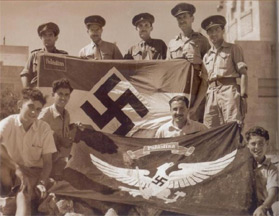 These flags are flags of the Nazi Youth Organization “Hitler-Jugend”, regional branch of Palestine. The historical context to the Grand Mufti of Jerusalem, Haj Amin Al-Husseini.” Every Israeli will understand this message. Will the Americans understand what we have to go through both as Civilians and in the Military? Just because someone is not in uniform does not mean they are not a target for an Arab Nazi (Fatah, Hamas, Hezbollah ect.) terrorist.
The Arabs have always been Nazis and they are still Nazis.
 Gaza “protesters” loft molotov cocktail on swastika kite over Israeli border  Iktiba High school posts picture presenting Hitler as admirable

Men of ice cream, men of unjust deserts
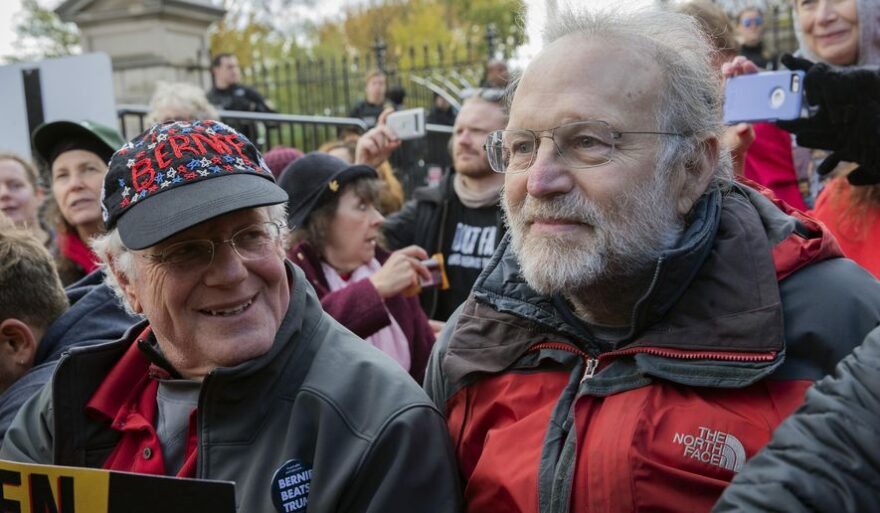 Ben Cohen, left, and Jerry Greenfield, co-founders of Ben & Jerry’s ice cream, attend a protest in Washington. The Vermont-based Ben & Jerry’s has always been known for promoting social causes as much as its flavors of ice cream, but few have attracted as much attention as its decision to stop selling its ice cream in the Israeli-occupied West Bank and contested east Jerusalem. Nov. 8, 2019 (AP Photo/Patrick Semansky, File) By Clifford D. May 03August2021 https://www.washingtontimes.com/news/2021/aug/3/an-open-letter-to-ben-cohen-and-jerry-greenfield/
ANALYSIS/OPINION:
Dear Messrs. Cohen and Greenfield,
Or is it okay if I call you Ben and Jerry? (You can call me Cliff!) So, anyhow, I read your op-ed in The New York Times, headlined, “We’re Ben and Jerry. Men of Ice Cream, Men of Principle,” and I thought you might like – or at least tolerate – a little feedback.
First: You call yourselves supporters of Israel. I don’t doubt it. But you should be aware that the BDS (“boycott, divest and sanction”) movement with which you’re now associated openly seeks Israel’s extermination.
“Definitely, most definitely we oppose a Jewish state in any part of Palestine,” Omar Barghouti, founder and leader of the movement (it’s really an agit-prop campaign) has said. “No Palestinian, rational Palestinian, not a sell-out Palestinian, will ever accept a Jewish state in Palestine.”
Perhaps you believe that the Palestinian state Mr. Barghouti hopes to see replace the Jewish state would refrain from killing or expelling Jews, and allow them to remain as a minority. But that’s hardly a safe bet considering what’s happened to Jews elsewhere in the region. (You know what I’m talking about, right?) And is there any country in the Middle East (other than Israel) where minorities – Kurds, Bahai, Druze, Christians, whatever – enjoy even basic rights?
In fact, in Gaza and the areas of the West Bank governed by the Palestinian Authority, selling land to Jews is a crime (with the death penalty for those who transgress), bounties are paid to terrorists who murder Jews (children included), and the educational system demonizes Jews (not just Israeli Jews). None of that is boycott-worthy?
Your second point is that “it’s possible to support Israel and oppose some of its policies.” Agreed. The policy you most vociferously oppose is the presence of Israelis in the West Bank. But consider: If Israelis were to withdraw from the West Bank, as they withdrew from Gaza in 2005, is it not probable (inevitable?) that the West Bank would become what Gaza has become?
I hope you’re aware that after the Israelis left Gaza – removing every soldier, farmer, synagogue, and cemetery – Hamas forcibly drove out Palestinian rivals. Since then, Hamas has ruled the territory. Since then, Hamas, along with Palestinian Islamic Jihad (both backed by the regime in Tehran which calls Israel a “cancerous tumor”) have been waging war against Israelis utilizing rockets, terrorist tunnels, incendiary kites, etc.
If Hamas takes over the West Bank, how long before rockets are fired at Israelis in nearby Jerusalem and Tel Aviv? Israelis will respond. Both Israelis and Palestinians will be killed. Your policy preference will have helped bring about this carnage. You’re okay with that?
Maybe you’ll say that Israelis need to work out a two-state solution. But they’ve tried. Offers were made in 2000, 2001, and 2008, not to mention the 1937 Peel Commission proposal and the 1947 U.N. plan which would have created one state for Palestinian Arabs and one for Palestinian Jews. Those offers were rejected by Palestinian leaders. No counteroffers followed.
It’s been years since Palestinian Authority President Mahmoud Abbas has been willing to engage in serious talks with Israelis. He’s currently demanding concessions as a pre-condition for returning to the table.
My theory: At age 85, he’s contemplating his legacy. He wants his portrait hanging next to that of Yasar Arafat not used for target practice – as would happen were he to end his career as a “sell-out Palestinian” shaking the hand of an Israeli leader on the White House lawn.
Other Arab leaders know this. It’s one reason many are no longer unfriendly to Israelis, some even signing the Abraham Accords. A prominent Arab leader (you’d know his name, but the conversation was off-the-record) told me that he and others are “fed up” with Mr. Abbas.
There’s much more you should know but may not. For example, the “occupied territories” were seized by the Israelis from Jordan – not from Palestinians – in the defensive war of 1967,
Jordan had conquered that territory, then known as Judea and Samaria, in the 1948 war against Israel. Jordan subsequently renamed it “the West Bank” (for obvious reasons), forcibly expelled all Jews, desecrated Jewish religious sites, and prohibited Jews from worshipping at their holiest sites.
Prior to Jordan’s occupation, the West Bank had been ruled by Britain. Before that, for centuries, it was a backwater of the Ottoman Empire.
For these and other reasons, the “occupied territories” are in truth disputed territories – of which the world has many: Western Sahara, Cyprus, Catalonia, Crimea, Tibet, Taiwan, among them. Do you think the Uighurs of Xinjiang would choose to be ruled by Chinese Communists?
Unusually and perhaps uniquely, Israelis are willing to give – to say “give back” would be inaccurate – disputed territories to Palestinians in exchange for nothing more than peaceful coexistence. To date, no Palestinian leader has been willing to accept that deal.
You’re encouraging such rejectionism. Your boycott asserts that Jews have no right to live in “Palestinian territories” – which even includes the ancient Jewish Quarter of Jerusalem.
This is why The Babylon Bee recently headlined: “Ben & Jerry‘s Introduces Fun New Flavor ‘Push The Jews Into The Sea Salt Caramel.’” The article adds: “All proceeds will go to Iranian rocket manufacturers to arm noble Hamas mujahideen warriors in their fight to destroy the Jews.”
The Bee is a satirical newspaper but there’s a double scoop of truth in its recognition that you’re serving Israelis unjust deserts.
Ben and Jerry, one of your flavors is “Half Baked.” If you’re really “men of principle,” you’ll ponder what I’ve said here, and ask yourselves whether your anti-Israeli boycott doesn’t qualify for the same moniker.
Your friend,
Cliff
• Clifford D. May is founder and president of the Foundation for Defense of Democracies (FDD) and a columnist for the Washington Times.
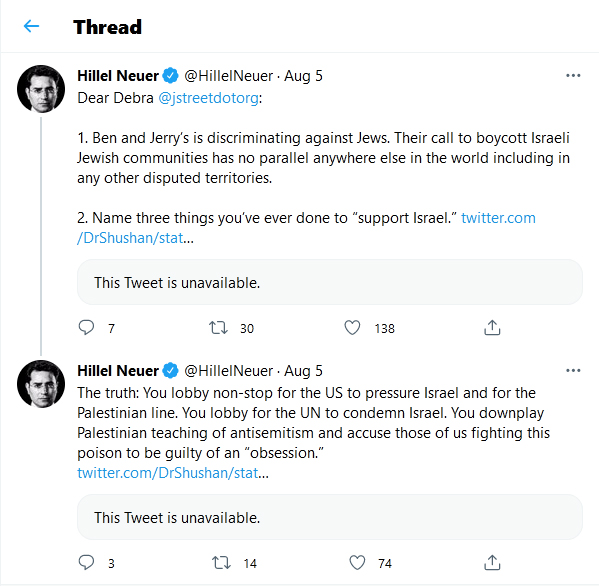 Hillel-Neuer-tweet-5August2021-Ben-and-Jerry’s-is-discriminating-against-Jews TOP |

We need to stop pretending that the Ben & Jerry’s argument is over a handful of wild-eyed “settlers” on remote hilltops. This is a fight over boycotting the Western Wall. Op-ed.
Stephen M. Flatow, 03August2021 4:53 AM https://www.israelnationalnews.com/News/News.aspx/311040
 Kotel, Western Wall, Jerusalem, Shavuot
(JNS) The media coverage of the Ben & Jerry’s controversy has described it as the company’s decision not to sell ice-cream in “the West Bank” or in “Israeli settlements.”
There’s just one problem: Ben & Jerry’s has never used those terms.
Look closely at the official Ben & Jerry’s announcement that ignited the controversy. Notice that the only geographic terms it uses is “Occupied Palestinian Territory.” Same for the July 27 tweet by Ben & Jerry’s board chair Anuradha Mittal.
And look at the op-ed in The New York Times by the founders of Ben & Jerry’s—Bennett Cohen and Jerry Greenfield—on July 28. They wrote that the company will “end business in the occupied territories,” and they referred to “the territories Israel occupies.” The words “settlements” and “West Bank” did not appear anywhere in the op-ed, just as they did not appear in the company’s announcement.
That’s not by accident. Announcements and op-eds of this significance are not just dashed off without a thought. The company made a major business decision with millions of dollars at stake. Such statements are crafted by teams of writers and advisers. Every word is carefully chosen. They go through draft after draft before getting final approval.
There’s a reason that Ben & Jerry’s, and its founders, have chosen to refrain from defining where that “Occupied Palestinian Territory.”
The reason is Jerusalem.
According to the Palestinian Arabs, as well as the various U.N. resolutions supporting them, “East Jerusalem” is part of the “Occupied Palestinian Territory.” Read their statements. Read their resolutions. That’s what they say. That’s what they believe.
Now, notice that the Bennett Cohen-Jerry Greenfield op-ed in the Times acknowledged that they are basing their views on the United Nations. They wrote that the decision “to end business in the occupied territories” was based on the grounds that “a majority of the international community, including the United Nations, has deemed [Israel’s presence] an illegal occupation.”
Well, if the source of their authority is the United Nations, then that means they consider “East Jerusalem” to be “occupied,” too. And therefore, we can assume that they will be refraining from selling their ice-cream there.
What is “East Jerusalem,” exactly? It’s the part of the city that Israel liberated as part of the Six-Day War in June 1967. It includes the walled Old City, where the Jewish Quarter, whose longtime residents were forcibly evacuated during Israel’s War of Independence, Western Wall and Temple Mount are located; the adjoining Mount of Olives cemetery, which is the oldest Jewish cemetery in the world; mixed Jewish-Arab neighborhoods such as Shimon HaTzadik (Sheikh Jarrah) and Kfar Shiloah; and the various Arab neighborhoods around the eastern edge of the city.
“East Jerusalem” also includes numerous major Jewish neighborhoods that lie partly, or entirely, beyond the pre-1967 armistice line, such as Ramot, French Hill, Gilo and Ramat Shlomo.
Mittal has made it crystal-clear that she considers eastern Jerusalem “occupied territory.” As recently as July 30, for example, she re-tweeted a statement about “Israeli occupiers” arresting Arab rock-throwers “from Sultan Suleiman Street in J’salem.” Sultan Suleiman Street runs along the walls of the Old City. Part of it is within the pre-1967 armistice line, part of it is beyond. To the chair of the Ben & Jerry’s board, it’s all “occupied.”
So why, in their official announcements, has Ben & Jerry’s been coy about Jerusalem? Because they know what would happen if they said, openly: “Our company is boycotting the Old City, the Western Wall and Temple Mount because we consider it to be Occupied Palestinian Territory.” The volume of protests that Ben & Jerry’s is facing would be ten-fold what it is now. The Gristedes supermarket chain would not be reducing its Ben & Jerry’s shelf space by 30 percent, as they have announced; they would reduce it by 100 percent. Delta would not still be serving Ben & Jerry’s on its flights to Israel; neither would any other airline.
But as long as the company makes it seem as if it’s just targeting “settlements,” a certain segment of the Jewish community will support them. A number of left-wing Jewish groups, including J Street, Americans for Peace Now and Partners for Progressive Israel, have issued statements taking the side of the ice-cream makers.
And some major liberal Jewish groups, such as the Union for Reform Judaism, have not actively joined the protests. Look at the URJ website. Not a word about the Ben & Jerry’s action against Israel.
A divided Jewish community undermines the anti-Ben & Jerry’s protests and makes it more likely that the company will stick to its guns. The backing of Jewish left-wing groups enables Ben & Jerry’s to say, “See? We’re not anti-Semitic. We’re not anti-Israel. Look at these Jewish groups that support us.”
Could an organization such as the Union for Reform Judaism remain on the sidelines if a major American company says it is boycotting the Western Wall? I don’t think so.
It’s time for Ben & Jerry’s, and its left-wing Jewish supporters, to stop playing word games. Stop trying to pull the wool over the public’s eyes. Stop pretending that this is an argument over a handful of wild-eyed “settlers” on remote hilltops. This is a fight over boycotting the Western Wall. They know it, and we know it.
Stephen M. Flatow is an attorney in New Jersey and the father of Alisa Flatow, who was murdered in an Iranian-sponsored Palestinian terrorist attack in 1995. He is author of “A Father’s Story: My Fight for Justice Against Iranian Terror.”
JerusalemCats Comments:
“Could an organization such as the Union for Reform Judaism remain on the sidelines if a major American company says it is boycotting the Western Wall?”
Yes, they would.
TOP |
Ben and Jerry’s Israel-All Kashrut Cholov Yisroel NO Kitniyot-Pesach Ice Cream
 Michael Dickson-tweet-16March2023-Passover flavors of Israeli-owned Ben & Jerry’s 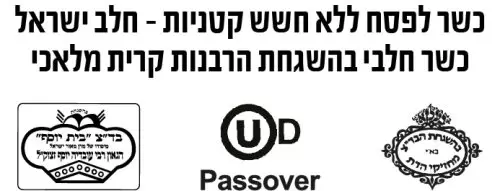 Ben and Jerry’s-All-Kashrut-Pesach-כל-כשרויות-פסח Another reason to make Aliyah!
 Nefesh B’Nefesh: Live the Dream US & CAN 1-866-4-ALIYAH | UK 020-8150-6690 or 0800-085-2105 | Israel 02-659-5800 https://www.nbn.org.il/ info@nbn.org.il It’s time to come home! Nefesh B’Nefesh: Live the Dream 1-866-4-ALIYAH
TOP |

by Julie Hammerman 29JULY2021 https://www.algemeiner.com/2021/07/29/without-an-aggressive-response-ben-jerrys-decision-is-a-harbinger-of-further-divestment-from-israel/
Companies hate controversy. Controversy threatens a company’s reputation and future earnings. With the dramatic growth of corporate social responsibility over the past decade, activists have increasingly generated controversy about companies in order to change corporate behavior on a range of social issues.
Often these changes are positive – an increased focus on environmental concerns, or diversity and equity issues, for example.
But BDS activists started applying these same tactics over a decade ago in order to push for corporate divestment from Israel. And they have been successful — as was the case with Ben & Jerry’s. After the Ben & Jerry’s announcement, Omar Barghouti, a BDS leader, declared, “We expect more socially responsible companies to follow suit, perhaps less publicly.”
And more companies may follow suit — especially if the Jewish community doesn’t launch an aggressive and prolonged counter controversy aimed at Ben & Jerry’s and parent company Unilever.
Most companies will do an analysis of their economic and political interests to determine whether submitting to the BDS movement is in their interests. Without pro-Israel pushback, companies may follow suit and divest from Israel — not because they agree with the BDS movement, or harbor antisemitism, but because they hate controversy.
On Unilever’s quarterly earnings call last week, UBS analyst Guillaume Delmas asked, “Where do you draw the line between purpose and an active political agenda?” Delmas was acknowledging that BDS is a political campaign that is manipulating Unilever’s corporate social responsibility goals.
Unilever CEO Alan Jope tried to calm the analysts on the call by saying, “It is not our intent to regularly visit matters of this level of sensitivity … certainly not our intention that every quarter we’ll have one as fiery as this one.” Ironically, on the same call, Jope detailed Unilever’s ice cream sales growth in China, without any mention of the litany of social concerns that surround China.
To combat BDS, it’s time to turn up the heat on Jope and ensure he has fiery quarterly earnings calls until the company’s support for BDS is reversed. All tactics are useful including press attention, boycotts, state pension divestment mandates, shareholder resolutions, protests outside stores, social media, petitions, etc. BDS activists didn’t invent these controversy-generating tactics — they just embrace them more comfortably than the Jewish community.
There has been a debate over the past week among American Jewish progressive leaders on whether the Jewish community should be so vocal on Ben & Jerry’s. Some have suggested that when the Jewish community exerts power, it only creates more antisemitism — or that Ben & Jerry’s capitulation is an acceptable version of BDS since Unilever added a sentence to the Ben & Jerry’s board announcement stating that the company would like to stay in Israel but not the “Occupied Palestinian Territories.”
But the time to get loud on Ben & Jerry’s is now. There should be no hesitation, no fear about antisemitism — which will exist regardless of whether the Jewish community exerts influence or sits quietly. There should be no slicing and dicing of BDS by Jewish organizations focused on battling with Israel over the settlements; the goal of BDS is to rid the world of Israel, and the settlements are just a stepping stone. There will be time for difficult conversations about the conflict, but now is the time to respond to the prolonged campaign of economic warfare aimed at Israel.
The Jewish community needs to realize the power and scope of the corporate social responsibility and socially responsible investing movements, and the uncomfortable fact that the BDS campaign’s narrative on Israel has thoroughly infiltrated these influential arenas.
As a result, companies are under enormous sustained pressure to avoid or divest from Israel.
Launching a counter controversy assault on Ben & Jerry’s and Unilever may or may not make the company back away from supporting BDS, but more importantly, it will signal to the CEOs of the 124 global (non-Israeli) companies actively being pressured by BDS that the controversy doesn’t go away once the company acquiesces to BDS — it only gets worse.
Julie Hammerman is the CEO of JLens, an investor network that serves as the bridge between the Jewish community and the socially responsible investing and corporate social responsibility movements. JLens’ Jewish Advocacy Strategy, with $130M invested by Jewish institutions, conducts investor advocacy with US public companies on Jewish communal concerns, including combating BDS.
TOP |
 Elder of Ziyon logo http://elderofziyon.blogspot.com/ 25July2021 Elder of Ziyon https://elderofziyon.blogspot.com/2021/07/the-ben-and-jerrys-foundation-has.html
Ben and Jerry’s controls the Ben and Jerry’s Foundation which supports various social justice causes.
In 2017, the Foundation gave some $80,000 to the Oakland Institute, a think tank whose executive director is Anuradha Mittal, the head of Ben and Jerry’s Board of Directors who has shown her antipathy towards Israel and sympathy towards terror groups on multiple occasions.
Of that amount, thousands were earmarked for the BADIL Resource Center for Palestinian Residency and Refugee Rights, which is dedicated to destroying Israel through the “right of return.”
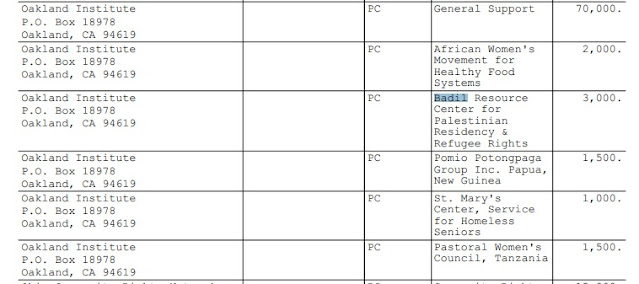 Ben and Jerry’s Foundation gave to Oakland Institute But BADIL is much worse than that.
In December of 2016, before this grant, BADIL issued a report that justified Palestinian terror – and said that Israel doesn’t have the right to defend itself from rockets and terrorists.
The right to resist of people under foreign and colonial domination, including armed struggle, and the applicability of these provisions to the Palestinian people has been reaffirmed by many other UNGA resolutions…In its suppression of resistance, Israel has made use of excessive force to stop armed struggle….Equating all forms of resistance with terrorism as a justification for suppression lacks legal basis, as the Palestinian struggle for liberation is legitimate and all actions carried out against Israel for that purpose are therefore lawful.
BADIL allows that there are rare instances where individual Palestinians might have crossed a legal line, but then says that Israel cannot retaliate against entire armed terror groups that sent them on their murderous mission. BADIL says that it is open season on Jews in Israel.
Before that, and certainly known to the Oakland Institute, BADIL cosponsored the 4th Annual Al-Awda Award in 2010 for posters, papers and caricatures. The second place award for caricatures, with a cash prize, went to this blatantly antisemitic cartoon:
 4th Annual Al-Awda Award in 2010 This wasn’t the only brush with antisemitism from BADIL. Its director Nidal Al-Azza, wrote in 2007 that it isn’t only Zionism that is racist, but Judaism itself:
Racism in the Zionist ideology and later, in the Israel regime, can be identified in… political concepts, ideas and visions inspired by religious thought, provisions of the Talmud, and legends, most importantly, the notions of Jews as “the chosen people of God,” “the pure race” and “the promised land,”… [and] the mentality of segregation, nurtured by life in the ghettos.
All of this was known at the time Ben and Jerry’s Foundation decided to grant thousands of dollars to BADIL, through Anuradha Mittal’s own foundation.
Is antisemitism and explicit support for murdering Jews in Israel part of the “social justice” that Ben and Jerry’s promotes?
TOP |
|

By Henriette Chacar
29June2022 AT 9:14 AM https://www.ibtimes.com/unilever-sells-ben-jerrys-israeli-business-defuse-bds-row-3556872
 Tubs of ice-cream are seen as a labourer works at Ben & Jerry’s factory in Be’er Tuvia, Israel July 20, 2021. (Photo: Reuters / RONEN ZVULUN ) Unilever on Wednesday sold its Ben & Jerry’s ice cream business in Israel to its local licensee for an undisclosed sum, aiming to smooth over a potentially damaging diplomatic row over the company’s political stance.
The deal comes after the U.S. ice cream brand announced last year it would stop marketing products in the Israeli-occupied Palestinian territories, saying that selling there was “inconsistent” with its values. Under the new arrangement Ben & Jerry’s ice cream will be available to all consumers in Israel and the occupied West Bank.
The episode highlighted the challenges facing consumer brands taking a stand on Israel’s military occupation of the Palestinians, such as San Francisco-based Airbnb, which in 2019 reversed its decision to delist Israeli settlements.
The international boycott, divestment and sanctions (BDS) movement seeks to pressure Israel to abide by international law in its treatment of the Palestinians. Israel says such boycotts are discriminatory and anti-Semitic.
On Wednesday, Israel’s foreign ministry called the Ben & Jerry’s deal “a huge victory.”
“We will fight delegitimization and the BDS campaign in every arena, whether in the public square, in the economic sphere or in the moral realm,” Israel’s Foreign Minister Yair Lapid said in a statement.
Last year, Israel condemned the sales boycott as “morally wrong” and said Unilever would face “severe consequences.” The consumer goods giant defended Ben & Jerry’s autonomy, but said it was “fully committed” to Israel and would find a solution by the end of this year.[L1N2UL25W]
Unilever had said previously it did not support the BDS movement, and reiterated that stance in a statement on Wednesday.
The new owner is the brand’s long-time Israeli ice cream licensee Avi Zinger, owner of American Quality Products. Zinger had sued Ben & Jerry’s after its decision in the West Bank, saying the company illegally severed their 34-year relationship.
“The new arrangement means Ben & Jerry’s will be sold under its Hebrew and Arabic names throughout Israel and the West Bank under the full ownership of its current licensee,” Unilever said.
A representative for the Vermont-based Ben & Jerry’s said the company does not agree with Unilever’s announcement and will no longer profit from Ben & Jerry’s in Israel.
“We continue to believe it is inconsistent with Ben & Jerry’s values for our ice cream to be sold in the Occupied Palestinian Territory,” the representative told Reuters.
REACTIONS
Pension officials in at least six U.S. states had restricted or sold Unilever stock or bonds to protest the Ben & Jerry’s decision, among them New York State Comptroller Thomas DiNapoli, Texas State Comptroller Glenn Hegar, and Arizona Treasurer Kimberly Yee. [L1N2RP1ZE] Representatives for all three told Reuters on Wednesday they would review Unilever’s move.
Billionaire activist investor Nelson Peltz, who is joining the board of Unilever next month, was involved in the discussions to bring about the resolution, said Rabbi Abraham Cooper, associate dean of the Simon Wiesenthal Center, a human rights organization that supported the deal. Peltz is the chairman of the center’s board of governors.
Peltz met with Unilever CEO Alan Jope in September before Trian Partners, the investment fund Peltz runs, bought any shares, to discuss the situation, a person familiar with the matter said.
Trian Partners commended the new arrangement in a statement, saying that “respect and tolerance have prevailed.”
Ben & Jerry’s and its independent board maintained the right to decide on its social mission when it was bought by Unilever in 2000. But Unilever said it “reserved primary responsibility for financial and operational decisions and therefore has the right to enter this arrangement.”
Israel captured the West Bank, part of the territory Palestinians want for an independent state, in a 1967 Middle East war. Most countries consider Israeli settlements on Palestinian land to be illegal. Israel disputes this.
“The return of Ben and Jerry’s to Israeli settlements, which were built on Palestinian land, exposes it to international legal accountability and its name will be on the United Nations blacklist of companies operating in settlements,” The Palestine Liberation Organization’s Wasel Abu Yussef told Reuters.
Omar Shakir, Israel and Palestine Director at Human Rights Watch, said the deal sought to undermine the “principled decision” to stop selling the ice cream in Israeli settlements.
“What comes next may look and taste similar, but, without Ben & Jerry’s recognized social justice values, it’s just a pint of ice cream,” he said in a statement.
Ben & Jerry’s Jewish founders, Ben Cohen and Jerry Greenfield, no longer manage the brand but are well known for their commitment to social justice. The company has recently expressed strong support for the Black Lives Matter movement, LGBTQ+ rights and electoral campaign finance reform.
© Copyright Thomson Reuters 2022. All rights reserved.
TOP |
בן & ג’ריס ישראל תוכל להמשיך למכור גלידה בכל רחבי ישראל
 https://www.benjerry.co.il/ https://www.benjerry.co.il/whats-new/arrangement/
הישג משמעותי לבן & ג’ריס ישראל והבעלים והמנכ”ל אבי זינגר: בהסדר שנחתם עם חברת יוניליוור העולמית הוסכם כי החברה הישראלית תמשיך לייצר ולמכור גלידה בכל רחבי ישראל – ללא הגבלת זמן. ההסדר מסיים את המחלוקת בין הצדדים.
בן & ג’ריס ישראל (American Quality Products), בבעלות אבי זינגר מודיעה היום (ד’) על חתימת הסדר עם חברת יוניליוור הבינלאומית המבטיח את המשך פעילות המפעל ומכירת הגלידה בכל רחבי ישראל. ההסדר מסיים את המחלוקת בין הצדדים, שנוצרה בעקבות סירובה של בן & ג’ריס האמריקנית לחדש זיכיון המכירה של זינגר בן 35 השנים, אשר אפשר לו לייצר ולמכור גלידת בן & ג’ריס בכל רחבי מדינת ישראל.
במסגרת ההסדר שנחתם, הוסכם כי אבי זינגר ירכוש את הזכויות לייצר ולמכור את גלידת בן & ג’ריס, ללא הגבלת זמן, במדינת ישראל. הסדר זה מבטיח את המשך פעילות מפעל בן & ג’ריס ישראל בבאר טוביה באופן עצמאי ללא תלות בחברת יוניליבר, ואת הביטחון התעסוקתי של מאות העובדים במפעל, וכן את פרנסתם של אלפי ישראלים ופלסטינים שאמונים על האספקה והשירותים, עליהם מסתמך המפעל.
אבי זינגר, מנכ”ל ובעלים, בן & ג’ריס ישראל אמר בעקבות ההסדר: “אני שמח מאוד שלאחר חודשים ארוכים של מאבק, הצלחנו להבטיח כי נמשיך לייצר ולמכור את גלידת בן & ג’ריס האהובה לכלל לקוחותינו, ללא אפליה, בכל רחבי ישראל ויהודה ושומרון. אני מודה ליוניליוור על נכונותם להגיע לפתרון, ולעמדתם הנחרצת נגד תנועת ה-BDS. זה היה מאבק ממושך ומורכב, חוצה גבולות ומגזרים. מדובר בניצחון משמעותי עבורנו ועבור כל מי שמאמין בשיתוף פעולה ודו קיום, ובתבוסה מהדהדת לאלו הדוגלים באפליה ובחרמות”.
“אני רוצה להודות בשמי ובשם עובדי המפעל על התמיכה המשמעותית שקיבלנו מחברי כנסת מכל קצוות הקשת הפוליטית בישראל, וממשרד החוץ בראשות שר החוץ יאיר לפיד. אני מודה על מאמצם של נציגי ממשל במדינות רבות בארה”ב, אשר יזמו סנקציות חמורות בתגובה לחרם, לארגונים יהודים ופעילים מרחבי העולם, שתמכו במאבק. תודה גם לעליזה לוין והצוות שלה ממרכז ברנדייס ולמארק צל ונתן לוין, שעבדו ללא לאות כדי להגיע לתוצאה המיוחלת. התמיכה שקיבלנו מכל עבר היא זו שאפשרה את ההחלטה המשמחת הזו. אני שמח שנוכל להתמקד כעת במה שאנחנו עושים הכי טוב מזה 35 שנה – הכנת גלידת פרימיום איכותית לכולם, ללא יוצאים מן הכלל”.
Ben & Jerry’s Israel will continue to sell ice cream all over Israel
 https://www.benjerry.co.il/ Significant achievement for Ben & Jerrys Israel and owner and CEO Avi Singer: In an agreement signed with the global Unilever company, it was agreed that the Israeli company will continue to produce and sell ice cream throughout Israel – indefinitely. The settlement ends the dispute between the parties.
Ben & Jerry’s Israel (American Quality Products), owned by Avi Singer, announces today (Wednesday) the signing of an agreement with the international company Unilever, which ensures the continued operation of the factory and the sale of ice cream throughout Israel. The settlement ends the dispute between the parties, which arose following the refusal of American Ben & Jerry’s to renew the 35-year-old Singer’s franchise, which allowed him to produce and sell Ben & Jerry’s ice cream throughout the State of Israel.
As part of the agreement signed, it was agreed that Avi Singer would acquire the rights to produce and sell Ben & Jerry’s ice cream, indefinitely, in the State of Israel. This arrangement ensures the continued operation of the Ben & Jerrys Israel plant in Beer Tuvia independently of Unilever , and the employment security of the hundreds of workers in the plant, as well as the livelihoods of thousands of Israelis and Palestinians in charge of the supply and services on which the plant relies.
Avi Singer, CEO and owner, Ben & Jerrys Israel said following the arrangement: “I am very happy that after many months of struggle, we were able to ensure that we continue to produce and sell the beloved Ben & Jerrys ice cream to all our customers, without discrimination, all over Israel and Judea and Samaria. I thank Unilever for their willingness to reach a solution, and for their firm stance against the BDS movement. It was a long and complex struggle, crossing borders and sectors. It is a significant victory for us and for everyone who believes in cooperation and coexistence, and in a resounding defeat for those who advocate discrimination and boycotts. “
“I would like to thank on my behalf and on behalf of the factory workers for the significant support we have received from Knesset members from all corners of the political spectrum in Israel, and from the Ministry of Foreign Affairs headed by Foreign Minister Yair Lapid. I am grateful for the efforts of government representatives in many countries in the United States, who have initiated severe sanctions in response to the boycott, of Jewish organizations and activists from around the world, who supported the struggle. Thanks also to Aliza Levin and her team from the Brandeis Center and Mark Shadow and Nathan Levin, who worked tirelessly to achieve the desired result. The support we received from all sides is what made this happy decision possible. I am happy that we can now focus on what we have been doing best for 35 years – making quality premium ice cream for everyone, without exception. “
TOP
|

פרסום ראשון: אחרי לחץ כבד מאוד שהופעל בשנה האחרונה על תאגיד יוניליוור – נחתם הסדר עם היצרן המקומי של גלידות בן אנד ג’ריס, שסירב לוותר על מכירת המוצרים בהתנחלויות. “ניצחון משמעותי עבור כל מי שמאמין בשיתוף פעולה ובדו-קיום”, מסר הזכיין. לפיד: “האנטישמים לא ינצחו אותנו, גם לא בגלידה”
איתמר אייכנר, מירב קריסטל|29.06.22 | 15:42
הדפסהמצאתם טעות? דווחו לנו
https://www.ynet.co.il/news/article/bytj4ptc9
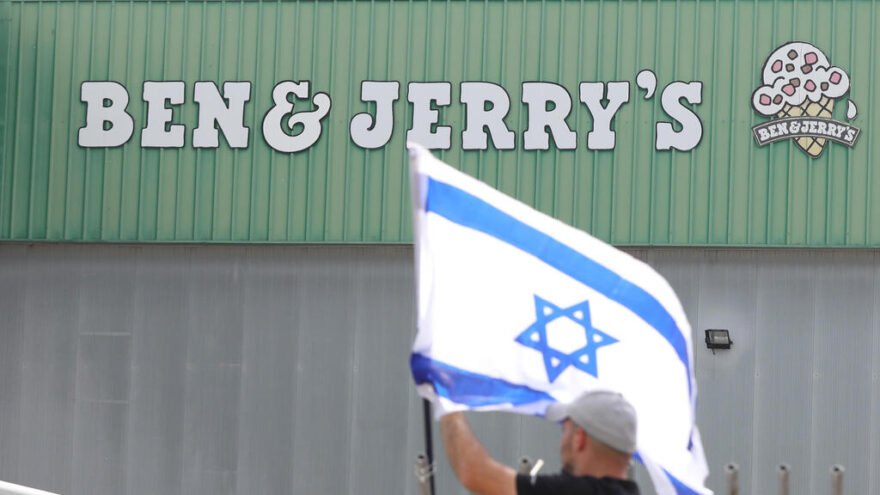 Ben & Jerry’s factory in Beer Tuvia( Photo: EPA )
פרסום ראשון: הזכיין הישראלי של חברת הגלידות בן אנד ג’ריס, אבי זינגר, הודיע בצהריים (רביעי) כי הגיע להסדר מול תאגיד יוניליוור העולמי – שיאפשר לו להמשיך למכור את הגלידות שהוא מייצר גם בהתנחלויות, בניגוד למה שהחברה האמריקנית דרשה. המחלוקת שהתפתחה בשנה שעברה סביב מכירת הגלידות, כך נראה, הגיעה לסיומה.
במסגרת ההסדר שנחתם, הובטח לזינגר להמשיך לייצר את הגלידה כפי שעשה ב-35 השנים האחרונות ללא הגבלת זמן או מגבלת מכירה, והזכיין הישראלי ציין כי הסיכום מאפשר את המשך פעילות המפעל בבאר טוביה שמעסיק מאות עובדים, ואת פרנסתם של אלפי ישראלים ולפסטינים שאמונים על האספקה והשירותים של המפעל.
מה שאפשר את ההסדר מול יוניליוור שעוקף את חברת בן אנד ג’ריס האמריקנית הייתה הסכמה ולפיה האריזות יוחלפו לכאלו שהכיתוב בהן יהיה בעברית ובערבית – ולא באנגלית. כמו כן, תמונתם של מייסדי החברה, בנט כהן וג’רי גרינפלד, תוסר מהאריזה בישראל.
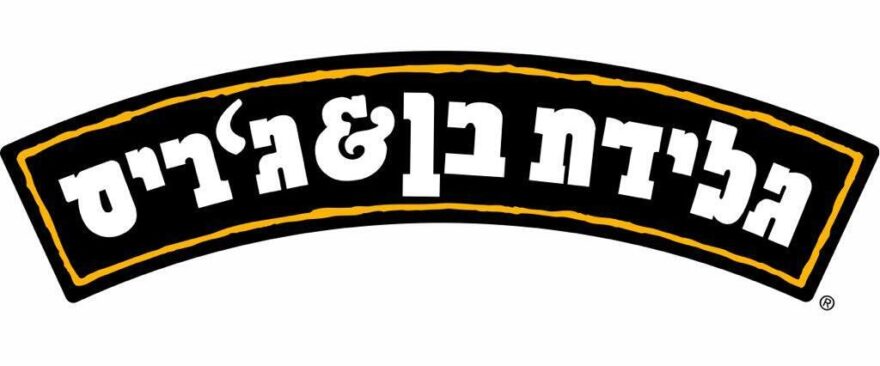 Ben & Jerry’s new logo – in Hebrew Google translation:

Agreement with Unilever: The Israeli franchisee will continue to sell Ben & Jerry’s ice cream in the settlements
First publication: After very heavy pressure on Unilever Corporation in the past year, an agreement was signed with the local ice cream manufacturer Ben & Jerry’s, which refused to give up selling the products in the settlements. “A significant victory for anyone who believes in cooperation and coexistence,” the franchisee said. Lapid: “Antisemites will not defeat us, not even ice cream”
Itamar Eichner, Meirav Krystal 29.06.22 | 15:42 https://www.ynet.co.il/news/article/bytj4ptc9
 Ben & Jerry’s factory in Beer Tuvia( Photo: EPA )
First publication: The Israeli franchisee of the ice cream company Ben & Jerrys , Avi Singer, announced at noon (Wednesday) that he has reached an agreement with the global Unilever corporation – which will allow him to continue selling the ice creams he also produces in the settlements, contrary to what the American company demanded . The controversy that developed last year over the sale of ice cream, it seems, has come to an end.
As part of the agreement signed, Singer was promised to continue producing the ice cream as he has done for the past 35 years with no time limit or sales limit, and the Israeli franchisee noted that the agreement allows the plant to continue operating in Beer Tuvia and employ thousands of Israelis and Palestinians in supply and services. Of the factory.
What made possible the arrangement with Unilever, which bypasses the American Ben & Jerrys company, was an agreement according to which the packaging would be replaced with those with the caption in Hebrew and Arabic – and not in English. Also, the photo of the company’s founders, Bennett Cohen and Jerry Greenfeld, will be removed from the packaging in Israel.
 Ben & Jerry’s new logo – in Hebrew  https://www.benjerry.co.il/ |

End Ben & Jerry’s Occupation! How come it doesn’t have the now-fashionable “Land Acknowlegment” on its cartons.
Posted by Johanna Markind 13August 2022 at 06:00pm https://legalinsurrection.com/2022/08/israeli-students-troll-ben-jerrys-over-its-occupation-of-abenaki-land/
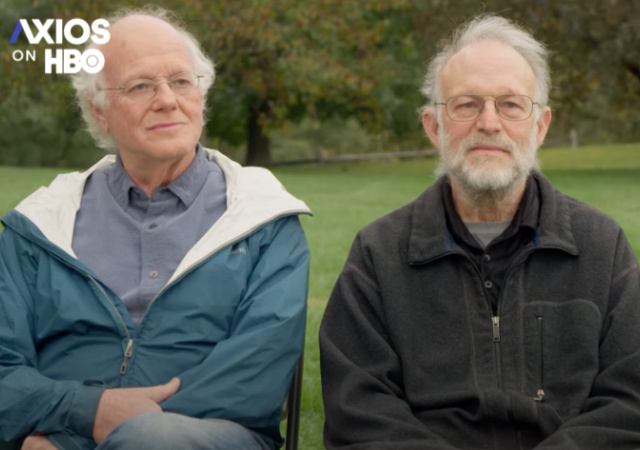 Ben and Jerry A letter signed by a thousand Israeli students accuses BDS-supporter Ben & Jerry’s of hypocrisy in illegally occupying Vermont land that belongs to Abenaki Indians while self-righteously refusing to do business in “occupied Palestinian territory.”
 Adam-Milstein-tweet-10August2022-Too good!
Israeli students claim that ice cream maker Ben & Jerry’s is “illegally” occupying land in Vermont that once belonged to a Abenaki native American tribe and should practice what it preaches and immediately evacuate the properties To recap the background: in July 2021, the ice cream company joined the BDS movement, announcing it would no longer sell ice cream in what it called “occupied Palestinian territory,” a/k/a Judea and Samaria. Ben & Jerry’s Israeli licensee, Avi Zinger, brought the ice cream to Israel some 35 years ago when the Vermont company was young. He both manufactures and distributes Ben & Jerry’s ice cream in Israel. He refused to comply with the boycott. Last August, the ice cream company announced it wouldn’t renew Zinger’s license after it expires at the end of 2022. Zinger sued Ben & Jerry’s and its corporate owner, Unilever. The latter then sold Ben & Jerry’s business in Israel and the territories to Zinger. Ben & Jerry’s then sued Unilever, claiming the sale violated the rights of the ice cream company’s independent board, which was responsible for safeguarding its “social mission.” That suit is now pending.
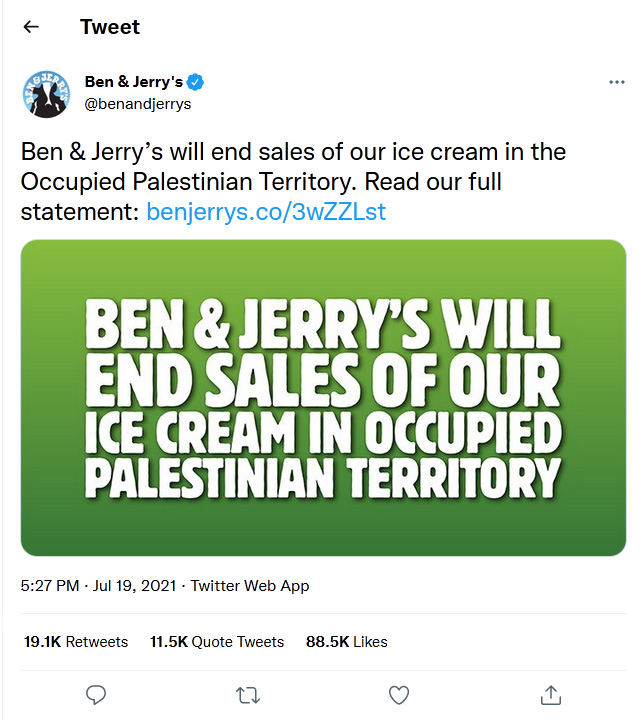 Ben-&-Jerry’s-tweet-19July2021-Ben & Jerry’s will end sales of our ice cream in the Occupied Palestinian Territory. We’ve previously covered the controversy here:
The letter, signed by more than a thousand Israeli students and academics affiliated with Students for Justice in America and supported by Shurat HaDin – Israel Law Center, accused Ben & Jerry’s of operating their Vermont factory on lands belonging to the Abenaki people. LIF reached out to Shurat HaDin requesting a copy of the letter, but did not receive a response. As reported in the New York Post, the letter included the following:
“We have concluded that your company’s occupation of the Abenaki lands is illegal and we believe it is wholly inconsistent with the stated values that Ben & Jerry’s purports to maintain. Ironically, in July of the last year you announced that you would discontinue the sale of your products in Israel because you object to the Jewish State allegedly occupying Palestinian territories,” the letter to B&J’s chairperson, Anuradha Mittal said…
“Ben and Jerry’s has never even offered to provide compensation to this indigenous nation in Vermont,” the letter from the students’ group, which is a counterpoint to Students for Justice in Palestine, which promotes the BDS movement against Israel, said.
“Justice, morality and boycotts are not just slogans and antisemitic weapons for your food company to point at the Jewish community in Israel. Justice and morality must begin at home.”
The students demanded that B&J immediately evacuate the properties “it occupies” in South Burlington, Waterbury and Saint Albans and “return them to the Abenaki people”, adding, “your company has no right to these stolen territories.”
As the letter states, the land where Ben & Jerry’s is based used to belong to the Abenaki, a Native American tribe that lived throughout what are now New England and New Brunswick at the time European colonists first arrived in New England. The tribe’s traditional homeland included Vermont, where Ben & Jerry’s headquarters is located. After having been welcomed by them (like the Abenaki chief Samoset, who welcomed the Pilgrims), English colonists fought several wars with the Abenaki and eventually forced the survivors to settle in what was then French Quebec.
Ben & Jerry’s has long claimed to embody values including “Human Rights & Dignity,” “Social & Economic Justice,” and “Environmental Protection, Restoration, & Regeneration.” Its website boasts about its “Progressive Values”:
We have a progressive, nonpartisan social mission that seeks to meet human needs and eliminate injustices in our local, national, and international communities by integrating these concerns in our day-to-day business activities…
- We seek and support nonviolent ways to achieve peace and justice. We believe government resources are more productively used in meeting human needs than in building and maintaining weapons systems.
Despite Ben & Jerry’s pretensions about its “progressivism” and “social mission,” its website includes no land acknowledgement accepting the problematic way European colonies gained control of the land from Native Americans. Such statements have become de rigueur among the politically correct.
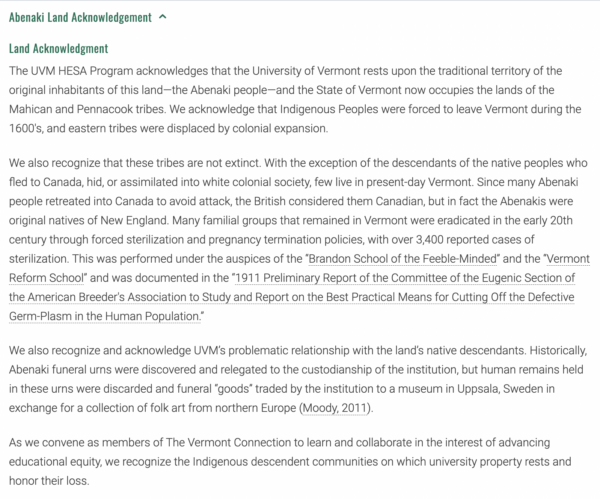 University of Vermont Abenaki Land Acknowledgement University of Vermont Abenaki Land Acknowledgement
For example, the University of Vermont, the campus of which is located about three miles away from Ben & Jerry’s headquarters in Burlington, Vermont, has a Land Acknowledgment on its website that states the following:
The UVM HESA Program acknowledges that the University of Vermont rests upon the traditional territory of the original inhabitants of this land – the Abenaki people – and the State of Vermont now occupies the lands of the Mahican and Pennacook tribes. We acknowledge that Indigenous Peoples were forced to leave Vermont during the 1600’s, and eastern tribes were displaced by colonial expansion.
We also recognize that these tribes are not extinct. With the exception of the descendants of the native peoples who fled to Canada, hid, or assimilated into white colonial society, few live in present-day Vermont. Since many Abenaki people retreated into Canada to avoid attack, the British considered them Canadian, but in fact the Abenakis were original natives of New England. Many familial groups that remained in Vermont were eradicated in the early 20th century through forced sterilization and pregnancy termination policies, with over 3,400 reported cases of sterilization. This was performed under the auspices of the “Brandon School of the Feeble-Minded” and the “Vermont Reform School” and was documented in the “1911 Preliminary Report of the Committee of the Eugenic Section of the American Breeder’s Association to Study and Report on the Best Practical Means for Cutting Off the Defective Germ-Plasm in the Human Population.”
We also recognize and acknowledge UVM’s problematic relationship with the land’s native descendants. Historically, Abenaki funeral urns were discovered and relegated to the custodianship of the institution, but human remains held in these urns were discarded and funeral “goods” traded by the institution to a museum in Uppsala, Sweden in exchange for a collection of folk art from northern Europe (Moody, 2011).
As we convene as members of The Vermont Connection to learn and collaborate in the interest of advancing educational equity, we recognize the Indigenous descendent communities on which university property rests and honor their loss.
Ben & Jerry’s has not issued a public statement about the letter, or responded to LIF’s inquiry about it.
UPDATE (8-15-2022)
Shurat HaDin – Israel Law Center has provided LIF with a copy of the letter sent to Ben & Jerry’s. You can see it here. The letter, signed by 1,000 Israeli students and academics, was sent on behalf of a group called Students for Justice in America – an Israeli answer to the American group Students for Justice in Palestine. Ben & Jerry’s still hasn’t publicly responded to the letter. Perhaps they are realizing, People who live in glass houses shouldn’t throw stones.
SJA Letter with 1000 Signatures_
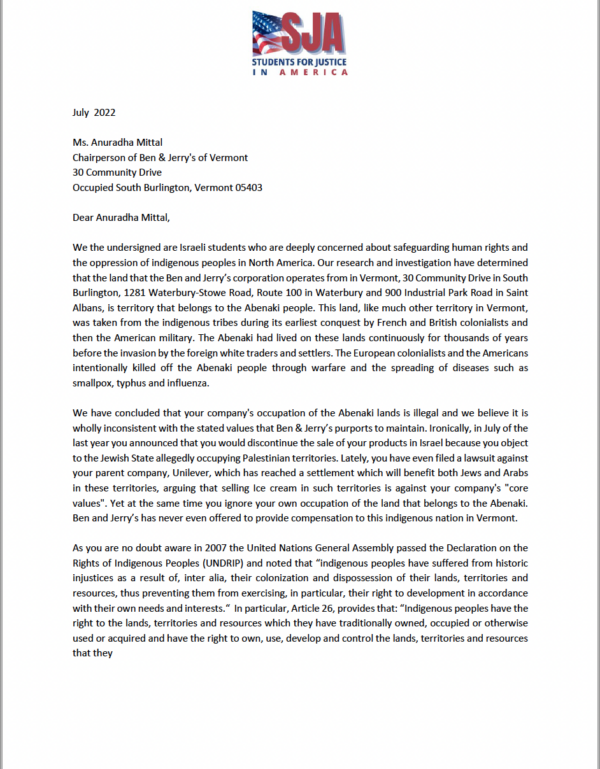 Students-for-Justice-in-America-Letter to Ben and Jerry TOP |

Judge denies Ben & Jerry’s woke board’s moot motion and rejects its claims of speculative injuries.
Posted by Johanna Markind Monday, August 22, 2022 at 09:00 pm https://legalinsurrection.com/2022/08/court-denies-ben-jerrys-request-to-stop-unilevers-already-consummated-sale-of-ice-cream-makers-israeli-business/
 Ben and Jerry On August 22, Judge Andrew L. Carter, Jr., denied Ben & Jerry’s motion for an injunction in its lawsuit against its corporate owner, Unilever.
We’ve previously covered the controversy here:
To recap briefly, Ben & Jerry’s “brand integrity” board sued Unilever to stop it from selling the ice cream maker’s business in Israel to its long-term Israeli licensee/manufacturer/distributor, Avi Zinger and his company, American Quality Products Limited (AQP). This, despite the fact that Ben & Jerry’s didn’t raise the issue in the same case or even sue in the same court adjudicating Zinger’s suit against – and now settlement with – Unilever.
Unilever completed the sale to/irrevocable license with Zinger in June. So what’s the rush? The judge found that there wasn’t any.
During an August 8 telephonic hearing on the motion for a preliminary injunction, the judge seemed underwhelmed by Ben & Jerry’s claim that it might create a new flavor to which Zinger might give a different interpretation, all of which might cause Ben & Jerry’s fan club to look askance at it.
The judge wanted to know more about the ice cream company’s claim there was imminent danger Unilever would sell rights to its normal, English-language trademark to Zinger. (Zinger had been sold or irrevocably licensed the right to use Ben & Jerry’s name in Hebrew and Arabic, not in English.) Because the issue was first raised during the hearing, Unilever was caught a little flat-footed.
Its lawyers followed up the next day with a letter to the judge, explaining a sale of rights to the English-language trademark wasn’t in the offing:
This firm represents Defendant Conopco, Inc. (“Conopco”) in the above-titled matter. During oral argument, Your Honor asked how past distribution of Ben & Jerry’s ice cream in Israel would compare to future distribution, and I was unable to provide a complete answer as to past practice. What I can now tell the Court is that: historically, the Ben & Jerry’s name (and other variant names used in the business, e.g., Chunky Monkey) have only appeared in English on the packaging used to sell Ben & Jerry’s ice cream in Israel and the West Bank. Under the new business arrangement, Ben & Jerry’s products in Israel and the West Bank will be labeled only with the Hebrew or Arabic language Ben & Jerry’s trademark, and not with English trademarks. What’s more, there is no contemplation of transferring any English trademarks to Mr. Zinger, as those trademarks were expressly excluded from transfer under the Business Transfer Agreement, nor is there contemplation of granting Mr. Zinger any future licenses. Unilever has sold off, and Mr. Zinger is now the owner of, the Ben & Jerry’s business in Israel and the West Bank under the Hebrew and Arabic trademarks; his website will be updated accordingly.
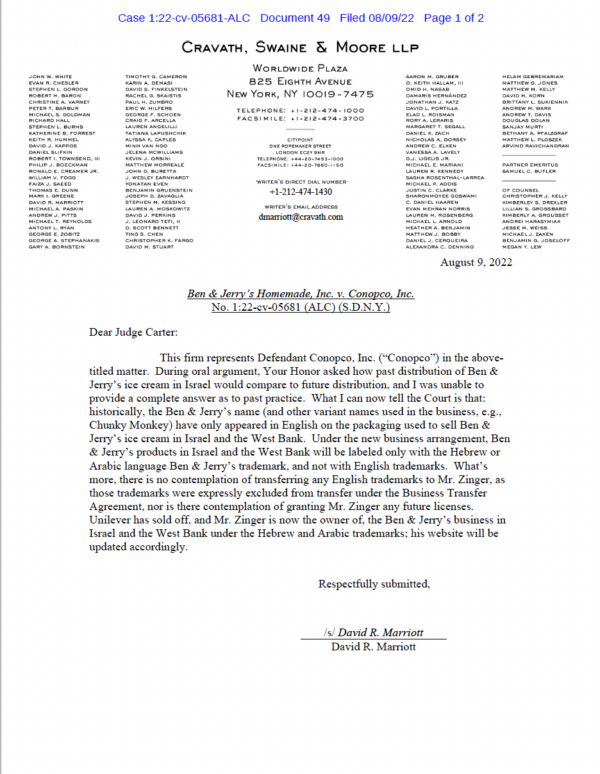 Ben-and-Jerry-D-letter-to-court-8-9-22 Letter from defense counsel to court. Letter from defense counsel to court. [Click on image to see document.]
 Click to download the letter Ben-and-Jerrys-v.-Conopco-Ds-ltr-to-ct-8-9-22 Click to download the letter Ben-and-Jerrys-v.-Conopco-Ds-ltr-to-ct-8-9-22
The judge’s brief opinion and order stated:
At the August 8 hearing, Plaintiff identified two examples of irreparable harm. First, Plaintiff stated that in the absence of an injunction, the new owners of Ben & Jerry’s products in Israel and the West Bank would have “the ability to undermine [Ben & Jerry’s ability to protest certain issues by launching products] by launching [the] exact same quality products with the exact opposite social mission stance.” Tr. 12:5-7. According to Ben & Jerry’s, the new owners would be able to direct the marketing in Israel and the West Bank of new mission-driven products such that the new owners could represent a contrary message when marketing the products. See Tr. 11:12-12:8. Second and relatedly, Ben & Jerry’s argue that the injunction is needed to prevent “customer confusion as to who owns Ben & Jerry’s social mission.” Tr. 13:12-13.
Neither reason suffices. Such purported harm is too speculative to constitute irreparable harm. The injunctive relief sought cannot issue on the basis of a hypothetical scenario involving several speculative steps, namely that (1) new products will be introduced, (2) those products will seek to convey a particular message, and (3) the new owners then will market those products to convey a contrary message.
The harm of customer confusion regarding Ben & Jerry’s positions is also remote. Ben & Jerry’s has offered no evidence of such confusion or the impact of the alleged confusion. If anything, media reports and this very lawsuit evince Ben & Jerry’s position on the issue. Further, the products sold in Israel and the West Bank will use no English trademarks, instead displaying new Hebrew and Arabic language Ben & Jerry’s trademarks. ECF No. 49. Thus, the products sold in Israel and the West Bank will be dissimilar from other Ben & Jerry’s products, mitigating, if not eliminating, the possibility of reputational harm.
Because Plaintiff fails to establish irreparable harm, the Court does not consider its remaining arguments.
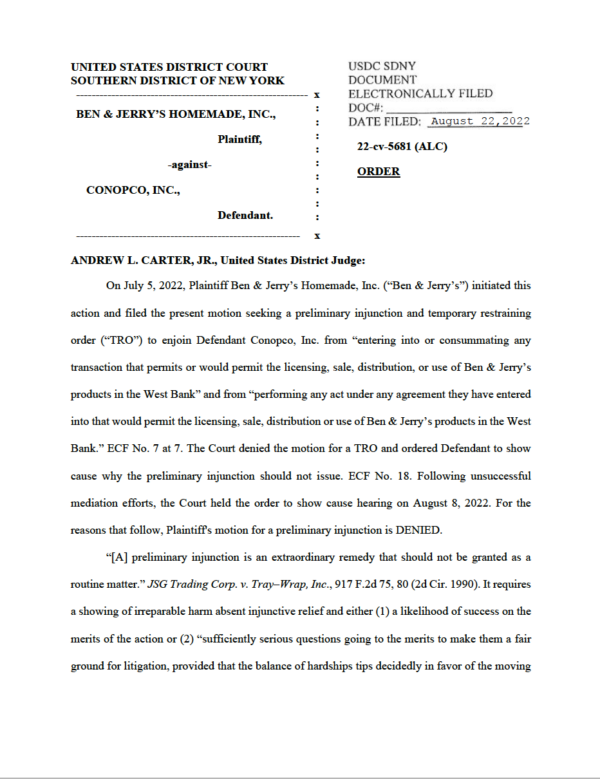 Ben-and-Jerry-Order-8-22-22 Court order denying Ben & Jerry’s request for an injunction against Unilever. Court order denying Ben & Jerry’s request for an injunction against Unilever. [Click on image to see document.]
 Click to download the order: Ben-and-Jerrys-v.-Conopco-Order-8-22-22-1 Click to download the order: Ben-and-Jerrys-v.-Conopco-Order-8-22-22-1
TOP |
Ben & Jerry’s Antisemitic board denounces Proud Israeli Jews
Producing and Selling גלידת בן וג’ריס in Eretz Israel

Ben & Jerry’s board denounces parent company as ‘against our values’ for selling rights to produce ice cream to Israeli licensee.
Israel National News
17November2022, 10:57 PM (GMT+2) http://www.israelnationalnews.com/news/362997
The board of directors of ice cream maker Ben & Jerry’s on Tuesday split with parent company Unilever to denounce products sold under the Ben & Jerry’s brand by the company’s Israeli distributor, Blue & White Ice Cream.
“Any products sold by Blue & White Ice Cream Ltd. are uniquely its own and should not be confused with products produced and distributed by Ben & Jerry’s Homemade Inc.” the Ben & Jerry’s board said in a statement. “Ben & Jerry’s position is clear: the sale of products bearing any Ben & Jerry’s insignia in the Occupied Palestinian Territory is against our values. Such sales are inconsistent with international law, fundamental human rights, and Ben & Jerry’s social mission.”
The board added that Unilever’s sale of their rights to produce their ice cream to Blue & White was made without their permission, Fortune reported.
Unilever, which is based in London, replied on Wednesday to the board, noting that it had sold its Ben & Jerry’s franchise in Israel to Blue & White in June.
“The ownership of the brand is different, but the Ben & Jerry’s product is no different to what’s been enjoyed in Israel for many years,” said the statement.
When Unilever purchased the ice cream maker in 2000, the contractual agreement gave Ben & Jerry’s the right to make decisions related to the company’s social stance but it gave Unilever the power to make final decisions on financial and operations moves.
In July 2021, Ben & Jerry’s announced that it would cease selling products in Judea and Samaria, which is termed the “Occupied Palestinian Territories.”
“We believe it is inconsistent with our values for Ben & Jerry’s ice cream to be sold in the Occupied Palestinian Territory (OPT). We also hear and recognize the concerns shared with us by our fans and trusted partners,” the company said at the time.
They also said they would stay in the rest of Israel “through a different arrangement.”
The announcement led to months of controversy and criticism, including multiple American states divesting from the firm, and Australia’s kosher authority delisting the ice cream maker.
In July 2022, Unilever announced that it had reached a new arrangement for Ben & Jerry’s in Israel, selling its Ben & Jerry’s business interests in Israel to Avi Zinger, the owner of American Quality Products Ltd (AQP), the current Israel-based licensee.
The new arrangement meant Ben & Jerry’s would be sold under its Hebrew and Arabic names throughout Israel, including Judea and Samaria, under the full ownership of its current licensee.
TOP |
 Israel Ben and Jerrys New flavor-A taste of Victory 
A defeat for Ben & Jerry’s, and all of BDS
The victory over the ice cream company’s efforts to cease sales in Judea and Samaria would not have been possible without continuous efforts to spread the truth: that boycotting Israel is antisemitic, and as such, is intolerable and unacceptable.
By Ariel Bulshtein Published on 08-24-2022 11:53 Last modified: 08-24-2022 11:59
https://www.israelhayom.com/opinions/a-defeat-for-ben-jerrys-and-all-of-bds/
Ben & Jerry’s resounding failure in trying to prevent the sale of its ice-cream in Judea and Samaria – a move first rejected by its parent company Unilever and now by a US court – is bound to have more far-reaching consequences than Israeli consumers’ ability to continue to enjoy the product.
Israel’s victory over the attempted boycott proves that insisting on our rights and uncompromisingly adhering to our principles pays off.
For years, we were used to efforts aimed at delegitimizing us. First, it was the Arab boycott, which expanded to other countries and companies that should have stood by Israel because they had no connection to the Arabs who tried to wipe the young Jewish state off the map. Their secondary boycott was particularly cynical: these nations and conglomerates simply surrendered to the forceful violence of those who seek to harm us, compromising their principles for nothing.
No wonder that those boycotting Israel were never satisfied with inflicting economic damage alone. They \wanted to isolate the Jewish state too, and strip it of its legitimacy through boycotting it in every arena, from international organizations to culture and sports.
Even when the Arab boycott stronghold was breached in the 1990s, the tools continued to be used by our enemies – now by left-wing organizations and Western countries – which were enthusiastic about embracing the anti-Zionist vision and isolating Israel with fervor that would have put the Nazi campaigns to shame.
For the Left, the outline was clear: to bring an anti-Israel atmosphere into every sphere of life, to ostracize the Jewish state and prepare the ground for the expansion of sanctions against it, all the way to government and international institutions.
Israel was targeted from all directions, and yet, it did nothing. The peak of the wave occurred around the turn of the century, which is no coincidence. The Oslo Accords and the disengagement policies only reinforced the boycott movement. A little bit more effort, the activists believed, and Israel will break.
And they spared no effort: Israeli scientists were excluded from international conferences and projects, international companies cut ties with Israeli tenders, and talks of boycotting corporations and banks that dared invest in Israel became common knowledge.
The trend began to change when Israel and its allies – Jewish communities in the Diaspora, first and foremost – stopped turning the other cheek and began to retaliate against our enemies.
We are beginning to see the fruits of their efforts with the Ben & Jerry affair, a victory that would have been impossible without continuous efforts to spread the truth: that boycotting Israel is antisemitic, and as such, is intolerable and unacceptable.
And yet, the fight is not over. There are still battles against the boycott movement to be fought, but the ice cream precedent is sweeter than ever. Our bravery brought us a victory.
Reader’s Comments:
Be Truthful 24August2022
The most harmful aspect of BDS is the persecution of Jewish students, organizations, and even faculty on college campuses in the West. That’s a fight that must be fought.
TOP |
 honest reporting-logo https://honestreporting.com Story updated on August 23, 2022: The attempt by ice-cream maker Ben & Jerry’s to stop sales of its products in Judea and Samaria was rejected on August 23 by a federal judge. US District Court…
Gil Hoffman July 4, 2022 https://honestreporting.com/stopping-bds-cold-five-lessons-to-be-learned-from-ben-jerrys-attempt-to-cream-israel/
Story updated on August 23, 2022: The attempt by ice-cream maker Ben & Jerry’s to stop sales of its products in Judea and Samaria was rejected on August 23 by a federal judge.
US District Court Judge Andrew Carter in Manhattan said that Ben & Jerry’s did not deserve an injunction to halt ice cream sales because it did not show that it would suffer irreparable harm, or that customers would be confused.
In the lawsuit, the Ben & Jerry’s board argued that the transfer breached a deal between them and Unilever because it circumvented the ice cream company’s decision to end sales in what it considers “occupied Palestinian territory.”
The agreement enabling Ben & Jerry’s ice cream to continue to be sold throughout Israel announced on June 29 was a sweet victory against the BDS movement.
This was a resounding win against the worldwide BDS movement, many of whose advocates openly support the destruction of the Jewish state. The agreement enabling Ben & Jerry’s ice cream was also a personal victory for the 160 people employed at the Negev factory who had been worrying about their jobs since the decision last July by Ben & Jerry’s to end its contract with its Israeli licensee Avi Zinger over his refusal to stop selling its ice cream over Israel’s pre-1967 border.
But parent company Unilever’s announcement last Wednesday that it had sold its Ben & Jerry’s ice cream business in Israel to Zinger has much farther reaching ramifications than their jobs or the packaging now being labeled in Hebrew and not English.
Not only did Unilever’s move prove that BDS can be defeated — it provided a new working model that can be employed in the future.
Takeaway #1: Gain the Moral High Ground
Ben & Jerry’s cited the company’s liberal values when it decided to break the 34-year agreement with its Israeli licensee because he would not stop selling ice cream in what the company termed “Occupied Palestinian Territory.”
But it quickly became apparent that the board of Ben & Jerry’s did not want its ice cream sold anywhere in the Jewish state, due to the extreme political views of the board members. Anuradha Mittal, the chair of Ben & Jerry’s board of directors, endorsed BDS on social media, posted an article defending Hezbollah and was accused in a watchdog complaint to the Internal Revenue Service of funneling tens of thousands of dollars from the company to her pro-Palestinian organization.
Related Reading: Ben & Jerry’s ‘Settlements’ Boycott: NYT, WaPo Cover Up Eliminationist Goal of BDS, Giving Free Pass to Orgs That Support It
Company founders Ben Cohen and Jerry Greenfield were offended by accusations of antisemitism. But when interviewed, they could not answer why the company had not stopped or conditioned sales in places like Georgia that also have policies they oppose.
Singling out the one Jewish state is part of the IHRA definition of antisemitism that has been adopted or endorsed by 865 entities worldwide, including 37 countries, and the US Departments of Education and State.
By contrast, whenever Zinger spoke, he was apolitical. He mentioned peace and coexistence and his opposition to discrimination.
“This is a significant victory for us and for all who believe in cooperation and coexistence, and it is a resounding defeat for those who call for discrimination and boycotts,” Zinger said in his June 29 victory tweet.
Takeaway #2: BDS Must Be Fought Both Publicly and Behind the Scenes
As part of the public relations battle, Zinger invited the press to visit the factory and speak to workers, including Muslim and Christian Arabs, Bedouin and Israeli Jews from across the political and religious spectrum. An Ethiopian immigrant with nine children who was afraid of losing his livelihood made a particularly strong impression on the international media.
In addition, Foreign Minister Yair Lapid, who is now Israel’s prime minister, spoke to governors whose states passed anti-BDS laws and urged them to take immediate action. Seven US states either restricted or sold Unilever stocks or bonds to protest Ben & Jerry’s decision, removing hundreds of millions in pension funds from Unilever.
Related Reading: Major Media Outlets Mute as US States Divest from Unilever Over Ben & Jerry’s Israel Boycott
Then-prime minister Naftali Bennett spoke to Unilever CEO Alan Jope. Meanwhile, the Knesset started working on implementing anti-boycott regulations against companies that were targeting Israel, and would have damaged Unilever’s massive investments in several Israeli companies that have nothing to do with ice cream had they succeeded.
But most of the work was done behind the scenes, painstakingly, by top Foreign Ministry officials. Foreign Ministry legal adviser Tal Becker and deputy director-general for public diplomacy Noam Katz worked tirelessly for several months to help find an amicable solution.
“The lesson is that quiet, smart diplomacy can be very effective,” a source close to Lapid told HonestReporting.
Takeaway #3: Partnerships Are Required to Defeat BDS
Zinger could not have fought Unilever and Ben & Jerry’s by himself. He takes pride in being a simple businessman who likes ice cream and hates politics.
“I don’t want to be a model, and I’m not interested in politics or politicians,” he told HonestReporting. “I just want to make ice cream and help my workers.”
So Zinger built a team of lawyers led by Alyza Lewin, the president of the Louis D. Brandeis Center for Human Rights Under Law, which sued Unilever in the US District Court of New Jersey, where Unilever US is headquartered.
Related Reading: Ben & Jerry’s Boycott Violates US Law, HonestReporting Takes Legal Action
The fight to keep Ben & Jerry’s throughout Israel was a partnership of Zinger, his lawyers, the Foreign Ministry and organizations like HonestReporting that campaigned for the justice of the cause.
Private business, government, legal authorities and public diplomacy organizations working together will be integral parts of all future efforts to fight BDS effectively.
Takeaway #4: Aim High
There was no point in fighting Ben & Jerry’s Vermont, which has a long history of supporting fringe political causes. Part of successful public diplomacy is knowing when to not make a wasted effort.
Unilever, by contrast, is an international corporation that could not afford to be tainted by charges of antisemitism. One official who worked for Zinger said the strategy was to “wear out Unilever” with the public campaign.
Related Reading: With A Little Help From Like-Minded Friends: Who Ben & Jerry’s Consulted With Before Making Israel Boycott Decision
The corporation could and should have acted against the Vermont decision from day one. But the end result of it taking so long was ultimately much better, because after being put on the defensive, Unilever’s announcement went well past Ben & Jerry’s.
“Unilever rejects completely and repudiates unequivocally any form of discrimination or intolerance,” the company said, adding: “Antisemitism has no place in any society. We have never expressed any support for the Boycott Divestment Sanctions (BDS) movement and have no intention of changing that position.”
Those who question whether BDS is antisemitism no longer have to quote an Israel advocate saying it. Here Unilever says it loudly and clearly.
Unilever boasted that it has invested more than one billion shekels in its business in Israel and said the company “looks forward to continuing to make a positive contribution to Israel’s economy and society for many decades to come.”
Takeaway #5: Create a Win-Win Situation for Everyone…including the Loser
Zinger can now distribute ice cream in Israel forever. He can now also sell products with Arabic-language labels for the first time, and as part of the agreement, he will be given rights to sell any new flavors launched by Ben & Jerry’s in Vermont.
As such, his lawyers, Lapid and Israeli consumers emerged victorious.
But what about Ben & Jerry’s in Vermont? They won, too, because they can now claim that they will no longer profit from selling ice cream in what they see as occupied land.
“We continue to believe it is inconsistent with Ben & Jerry’s values for our ice cream to be sold in the Occupied Palestinian Territory,” a Ben & Jerry’s representative posted on Twitter.
The biggest winner, however, is Israel, which has gained a new deterrence mechanism in the fight against BDS — thanks to the Ben & Jerry’s victory that set a precedent that could prevent future battles from even taking place.
Or, as a Foreign Ministry official told HonestReporting: “This is definitely a resounding public punch with a strong message to every large international corporation.”
TOP |
Buy locally and save.
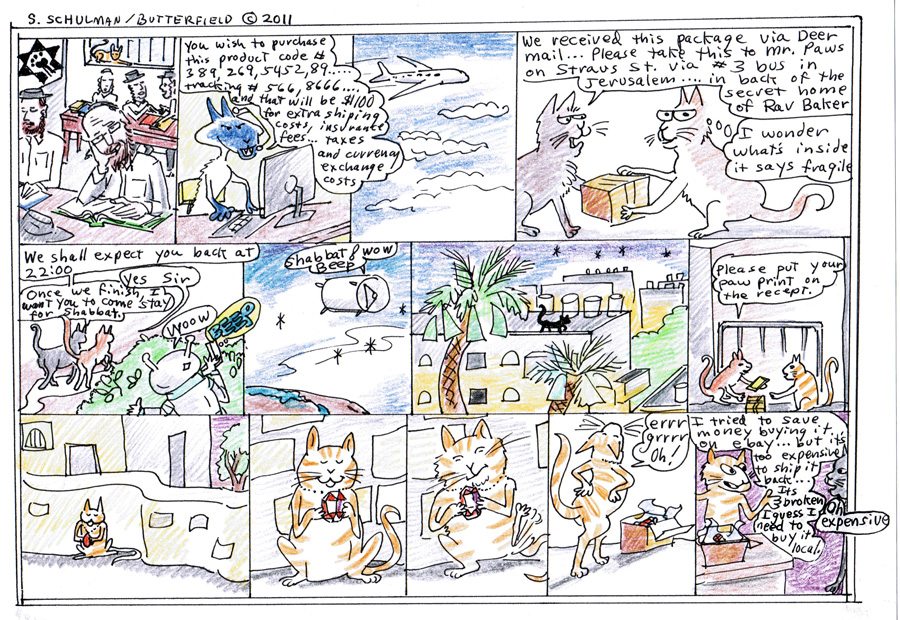 Buy locally and save, money, time, and stress A Yeshiva in Jerusalem, Men are studying.
Somewhere in the world (China) a Siamese cat is taking an internet order: “You wish to purchase this product code # 389 269 5452 9 89… Tracking # 566 8666… And that will be $100 for extra shipping costs, insurance fees…. Taxes and currency exchange costs.”
A Plane flies overhead.
Supervisor Postal Cat: “We received this package via Deer mail… Please take this to Mr. Paws on Straus St. Via #3 bus in Jerusalem.. In Back of the secret home of Rav Baker.”
Postal Cat thinking: ‘ I wonder what’s inside. It says fragile.’
Supervisor Postal Cat: “We shall expect you back at 22:00.”
Postal Cat: ” Yes, Sir.”
Supervisor Postal Cat: “Once we finish, I want you to come stay for Shabbat.”
Alien looking at the 2 Cats: “Woow!” Beep
The Alien Spacecraft: “Shabbat! wow Beep.”
Postal Cat walking on the rooftops.
Postal Cat with his iPad to Mr. Paws: “Plesae put your paw print on the recept.”
Mr. Paws with the Mystical Crystal iPhone. He tries and tries to turn it on. It does not work,”Dead on Arrival”.
Mr. Paws puts it back in the box: “Err Grrrr Oh!”
Mr. Paws to his wife: “I tried to save money buying on E-Bay… but it’s too expensive to ship it back… It’s broken. I guess I need to buy it local.”
His Wife: ‘Oh, Expensive.” |
| Buy locally and save. You may find a equivalent product locally at a cheaper price and with less stress and worry if something goes wrong. Remember to include the cost of Shipping, Insurance, Customs, and the cost of shipping the product back if something goes wrong. Also it may take a month to get your product from America. It may have to be examined by customs, both here and in the States.
TOP |
This is what it means to be “Pushed into the Sea”.
|
 Ben & Jerry’s-Push the Jews into the Sea Salt and Caramel flavor Ice Cream  Cannons of eight Arab states: Sudan, Algeria, United Arab Republic (then Egypt), Saudi Arabia, Jordan, Iraq, Syria and Lebanon. Lebanese daily Al-Jarida, May 31, 1967. |
 Egyptian pamphlet literally titled ‘Throw the Jews into the sea’ before the 1967 war |
Six Day War – Israeli victory – Documentary – War of Redemption
15 Seconds in Sderot, Israel
TOP |

Israel will grow and thrive with, or without, Chubby Hubby. What Israel does need, however, are the good Jews around the world who – until this week – ate Cookie Dough and Cherry Garcia. Op-ed.
Shmuel Sackett, 25July2021 https://www.israelnationalnews.com/News/News.aspx/310496
 Nefesh B’Nefesh: Live the Dream US & CAN 1-866-4-ALIYAH | UK 020-8150-6690 or 0800-085-2105 | Israel 02-659-5800 https://www.nbn.org.il/ info@nbn.org.il This past week, I read more articles and heard more jokes about Ben & Jerry’s than I have in the last 100 years… ok, only the last 59 years. While everyone meant well, including the “We Stand with Israel” attitude, I have to be straight and honest with you… you’re focused on the wrong thing!
The problem is not that Ben & Jerry’s ice-cream is sold in Jewish neighborhoods in NY or Chicago. The problem… is that there are Jewish neighborhoods in NY and Chicago! Sorry to break the bad news to you but this has nothing to do with ice-cream! The problem is much larger than Ben and Jerry… it includes Chaim, Moishe Dovid, Rivke, Sarale, Shira… That’s right, you are blaming the ice-cream, when it’s the people buying it up to now in the USA who need the wake-up call.
Personally, I don’t care what Ben or Jerry say. They are entitled to their opinion and if their warped minds drive them to the conclusion that they shouldn’t sell Chunky Monkey in Israel, then they shouldn’t sell it in Israel! You think we need that here? I assure you that Israel will grow and thrive with, or without, Chubby Hubby. What Israel does need, however, are the good Jews around the world who – until this week – ate Cookie Dough and Cherry Garcia. Yes, you… I’m talking to you!!!
No, dearest friends, it’s not enough to just kick both Ben and Jerry out of your homes and stores. You need to kick yourselves out of your foreign countries as well! All these signs that have been posted by stores proudly displaying that they “We Stand with Israel” need to be changed to “We Stand in Israel” because that is what the Jewish nation needs more than anything else.
All these signs that have been posted by stores proudly displaying that they “We Stand with Israel” need to be changed to “We Stand in Israel”
This twisted attitude reminded me of the difficult time in Israel during the knife attacks. It started on Sukkot, a few years ago, when an innocent Jew was stabbed – almost daily – as he/she was shopping or simply standing at a bus stop. Remember the holy Ari Fuld? He was one of those victims, may HaShem avenge his blood. After one of those horrific stabbings inside a Rami Levy supermarket, by an Arab employee, the owner – Rami Levy himself, announced that all knives would immediately be removed from the shelves. Wow! What a bold move… no more knives will be sold in Rami Levy!! There’s only one small problem… 80% of Rami Levy employees are Arabs and – last I checked – it wasn’t the knife that did the stabbing…
Throwing out the knives is similar to throwing out the ice-cream. The intention is good, but the action is meaningless. Let’s be honest; keeping the Arabs but throwing out the knives won’t save Jewish lives and keeping the Jews in America while throwing out the ice-cream won’t accomplish much either.
Therefore, here’s what really needs to be done. Call Nefesh b’Nefesh and get your Aliyah moving along. Then, at the big “Going Home to Israel Party”, serve Ben & Jerry’s to all your guests. Get the Caramel Chocolate Cheesecake (my personal favorite) and take as many selfies as possible. Send them to both Jerry & Ben with the line; “Thanks to you, we are moving to Israel with a sweet taste in our mouth!” Then get on the plane and never look back.
Shmuel Sackett is the Founder and Director of the Am Yisrael Chai Fund, which supports agricultural, educational and building projects across Eretz Yisrael.
www.AmYisraelChaiFund.org
TOP |
Ben and Jerry’s Israel-All Kashrut Cholov Yisroel NO Kitniyot-Pesach Ice Cream
 Michael Dickson-tweet-16March2023-Passover flavors of Israeli-owned Ben & Jerry’s  Ben and Jerry’s-All-Kashrut-Pesach-כל-כשרויות-פסח TOP |

By Hana Levi Julian
29 Nisan 5783 – April 20, 2023 https://www.jewishpress.com/news/breaking-news/new-ben-jerrys-limited-edition-flavor-for-lab-bomer-in-israel/2023/04/20/
 Ben & Jerry’s new flavor for Lag B’Omer, ‘S’mores’ Photo Credit: courtesy – Ben & Jerry’s new flavor for Lag B’Omer, ‘S’mores’
Israeli ice cream lovers, rejoice!
Ben & Jerry’s Israel has announced it will offer a brand-new flavor – in a limited edition – for the upcoming Lag B’Omer holiday.
The new flavor, “S’mores” will reprise the long-beloved sweet, created annually by countless children at summer campfires, using sweet crackers, chocolate bars and gooey, roasted marshmallows.
The name “s’mores” is an abbreviation of the phrase “some more.”
The Ben & Jerry’s version – only in Israel and only for the Lag B’Omer holiday, will feature ice cream that combines marshmallow with cookie crumbs, chocolate cookie crumbs and pieces of fudge.
The new flavor will be available in all the Israeli food chains, convenience stores and supermarkets where Ben & Jerry’s is sold.
 Ben & Jerry’s new Lag B’Omer S’mores flavor TOP |

The company caused many problems for Unilever over its hatred of Israel, embracing of antisemites, participation in the BDS movement, and anti-America tweets.
Posted by Mary Chastain
Wednesday, March 20, 2024 at 11:00am https://legalinsurrection.com/2024/03/unilever-dropping-anti-israel-company-ben-jerrys-as-it-exits-the-ice-cream-business/
Unilever, which owns over 400 companies, has finally decided to kick Vermont-based Ben & Jerry’s to the curb.
Unilever claims it wants “to accelerate its Growth Action Plan (GAP) through the separation of Ice Cream and the launch of a major productivity programme.” From the press release:
The Board believes that Unilever should be increasingly focused on a portfolio of unmissably superior brands with strong positions in highly attractive categories that have complementary operating models. This is where the company can most effectively apply its innovation, marketing and go-to-market capabilities. Ice Cream has a very different operating model, and as a result the Board has decided that the separation of Ice Cream best serves the future growth of both Ice Cream and Unilever.
Following separation, Unilever will become a simpler, more focused company, operating four Business Groups across Beauty & Wellbeing, Personal Care, Home Care and Nutrition. These Business Groups have complementary routes to market, and/or R&D, manufacturing and distribution systems, across both developed markets and Unilever’s extensive emerging markets footprint.
Unilever also owns Cornetto, Magnum, and Kwality Wall’s.
But dropping Ben & Jerry’s relieves Unilever of many troubles caused by the rabid anti-Israel company that enthusiastically joined the BDS movement.
Unilever bought Ben & Jerry’s in 2000. The company maintained an independent board of directors to continue its far-left political advocacy.
In 2018, Ben & Jerry’s embraced antisemite Linda Sarsour to promote its “Resist” ice cream. The money from the ice cream supported pro-Farrakhan Women’s March and other anti-Trump groups.
In 2021, Ben & Jerry’s chose to boycott the “Occupied Palestinian Territory,” including the ancient Jewish quarter of Jerusalem.
The boycott led to a year filled with lawsuits for Unilever.
A handful of states divested from Unilever over Ben & Jerry’s BDS actions.
Those states include Illinois, New Jersey, North Carolina, Colorado, Florida, and Arizona.
Even more states passed laws preventing them from investing with companies involved in the BDS movement. Illinois started things off in 2015.
Ben & Jerry’s head got too big, though. On Independence Day, the company tweeted, “This 4th of July, it’s high time we recognize that the US exists on stolen Indigenous land and commit to returning it.”
That tweet ticked off many people, including Native Americans. One leader of a tribe recognized in Vermont had a response:
Don Stevens, chief of the Nulhegan Band of The Coosuk Abenaki Nation—one of four descended from the Abenaki that are recognized in Vermont—told Newsweek it was “always interested in reclaiming the stewardship of our lands,” but that the company had yet to approach them.
It comes after the ice cream company was questioned as to when it would give up its Burlington, Vermont, headquarters—which sits on a vast swathe of U.S. territory that was under the auspices of the Abenaki people before colonization.
Ben & Jerry’s also lost $2.5 billion after the tweet, which resulted in many boycotts of the company.
TOP |
20March2025-Unilever has fired the CEO of Ben and Jerry’s
Yehuda Teitelbaum-tweet-20March2025-Unilever has fired the CEO of Ben and Jerry’s
🚨 New!
Unilever has fired the CEO of Ben and Jerry’s after the company attempted to make a social media post calling for the release of pro-Hamas agitator Mahmoud Khalil.
Apparently, that was the final straw for Unilever.
Reminded me of my favorite Ben and Jerry interview.
 Yehuda Teitelbaum-tweet-20March2025-Unilever has fired the CEO of Ben and Jerry’s
TOP |

By Ariel Zilber
Published 3July2025, 12:42 p.m. ET https://nypost.com/2025/07/03/business/unilever-cuts-funding-to-ben-amp-jerrys-charity-over-pro-palestinian-donations/
Unilever is reportedly cutting off millions of dollars in funding to the Ben & Jerry’s charitable foundation after it refused to provide audit documents about donations to pro-Palestinian groups, escalating an internal dispute between a corporate parent and its left-leaning subsidiary.
Peter ter Kulve, head of Unilever’s ice cream division, informed Ben & Jerry’s executives via email that the foundation’s trustees “have continued to resist basic oversight” and are not cooperating with requests from corporate auditors, according to the news site Semafor.
“It represents a marked departure from the norms of charitable organizations, for whom transparency is typically a bedrock operating principle,” ter Kulve wrote in the email, which was obtained by Semafor.
The audit process is part of Unilever’s ongoing effort to spin off its ice cream business, which includes the famously left-leaning Vermont-based brand.
The Ben & Jerry’s foundation distributed more than $5 million of Unilever’s funds in 2022, mostly to progressive organizations.
The foundation has operated under Unilever’s ownership since the multinational acquired Ben & Jerry’s in 2000.
Since then, the company’s outspoken political stances have frequently clashed with its corporate parent’s broader business objectives.
The audit has become a flashpoint in the growing dispute between Unilever and the foundation. According to Semafor, the probe into the foundation’s activities has revealed a deeper turf war over the scope and nature of its charitable giving.
Ter Kulve told executives that Unilever and the future independent Ben & Jerry’s management team had made repeated efforts to address the foundation’s concerns. These included changing the audit firm and pledging to keep certain grantee information private.
“The Foundation is a powerful force for good and has played a meaningful role in advancing the Ben & Jerry’s social mission,” ter Kulve wrote. “We remain committed to that mission.”
Despite these assurances, the dispute has continued to escalate.
Representatives for Unilever and Ben & Jerry’s did not respond to a request for comment.
The conflict between the British conglomerate — specializing in food, beverages, cleaning agents and personal care products — and the Ben & Jerry’s Foundation comes amid the broader plan to spin off its ice cream division, which it announced last year.
The audit of the foundation was initiated as part of that process. However, what began as a standard financial review has morphed into a highly charged confrontation over governance, transparency, and political values.
According to the foundation’s trustees, Unilever is using the corporate restructuring process as an excuse to undermine the foundation’s philanthropic work.
The origins of the rift trace back at least to 2021, when Ben & Jerry’s announced it would no longer sell its products in Israeli-occupied Palestinian territories.
Unilever responded by selling the Ben & Jerry’s license for the region, a move that sparked further backlash from the brand’s independent board of directors.
In November, Ben & Jerry’s independent directors filed a lawsuit against Unilever, accusing the parent company of silencing the ice cream maker’s public statements in support of Palestinian refugees.
TOP |

The reference raises eyebrows because Cohen previously cited his ‘proud’ Jewish identity in defending the company’s West Bank settlement boycott
By Ben Sales 8May2025, 4:57 pm https://www.timesofisrael.com/ben-cohen-of-ben-jerrys-goes-on-tucker-carlson-and-says-i-love-jesus-christ/
JTA — Four years ago, when the founders of Ben & Jerry’s took to The New York Times to defend their creamery’s West Bank settlement boycott, the opening of their op-ed read, “We are the founders of Ben & Jerry’s. We are also proud Jews.”
For at least one of them, that may have changed.
Ben Cohen, the Ben of the pair, appeared on Tucker Carlson’s talk show this week, mostly to discuss his opposition to US involvement in the Ukraine war and the Pentagon’s sprawling budget, issues where his long-touted progressive ideals can overlap with Carlson’s far-right ones.
Then, at the end of the hour-long show, Carlson asked Cohen about his “spiritual beliefs.”
“In terms of a spiritual belief, I mean, I don’t practice a religion,” Cohen responded. “I was born a Jew. I love Jesus Christ. I think the words that he said are wonderful, are amazing. And, you know, I’m kind of distressed that a lot of organized Christian religions are not really, I don’t know, abiding by the words of Jesus Christ.”
He added, “I think if we could follow the words of Jesus Christ and think about the Sermon on the Mount and, you know, take his words seriously, we wouldn’t be doing the stuff we’re currently doing.”
The Sermon on the Mount, in the New Testament Gospel of Matthew, is a series of widely known sayings in which Jesus outlines his moral vision.
Cohen’s religious inclinations are significant because Carlson is known for inviting antisemites, including a Holocaust revisionist, onto his show in the past. They are also important because Cohen and his co-founder Jerry Greenfield publicly marshaled their Judaism in defense of their company’s 2021 boycott.
The boycott drew widespread opposition from centrist and right-leaning Jewish groups, a wave of state-level legal challenges and led to a court battle that lasted years. Cohen and Greenfield — who grew up attending Hebrew school together on Long Island — sold the company to Unilever decades ago and no longer control it, though recently Cohen was reportedly planning a buyback.
“That we support the company’s decision is not a contradiction nor is it anti-Semitic,” the pair wrote in the Times op-ed. “In fact, we believe this act can and should be seen as advancing the concepts of justice and human rights, core tenets of Judaism.”
Later, they added, “As Jewish supporters of the State of Israel, we fundamentally reject the notion that it is anti-Semitic to question the policies of the State of Israel.”
The Carlson show, posted on Monday, also raises questions about whether Cohen would still identify as a supporter of Israel. The bulk of the interview was about Ukraine and the US defense budget, but near the end, when discussing why he thinks “we’re kind of headed toward war” in Iran, Cohen brought up Israel.
“There seems to be some kind of strange relationship between Israel and the US, where, I don’t know, Israel now has the US supplying weapons for its genocide,” Cohen said. “And what I’m told is that Israel wants some concept of greater Israel. I mean, I don’t really know much about that.”
(The term “greater Israel” has generally referred to Israeli control of territories such as the West Bank and Gaza, rather than its regional conflict with Iran.)
In response to a subsequent question, he said, “Right now what it means to be American is that we are the world’s largest arms exporter, we have the largest military in the world, we support the slaughter of people in Gaza, if somebody protests the slaughter of people in Gaza, we arrest them. What does our country stand for?”
This is not the first time this year that Cohen has accused Israel of genocide in its war against Hamas in Gaza, a charge the country strenuously rejects. In March, he said, “The US supporting this genocide is essentially trampling on the soul of America,” and added, “It’s not a war, it’s a slaughter. I don’t think there’s much difference between somebody getting killed by a bomb or getting killed by being thrown in a gas chamber.”
In the interview on Monday, Carlson did not address Cohen’s statements on Israel. He seconded Cohen’s praise of Jesus.
Cohen has also recently begun promoting a website to back DOGE, the Elon Musk-run operation that has rapidly slashed parts of the federal government, including large global humanitarian programs. A request for comment via that website, which Cohen touts on his X account, was not immediately returned.
TOP |
 Australia
Australia
 New Zealand
New Zealand


